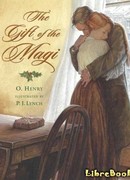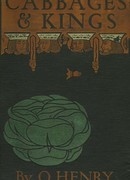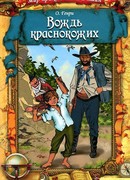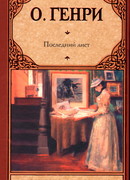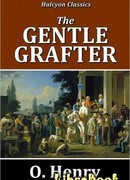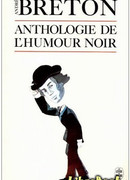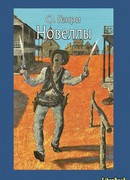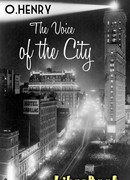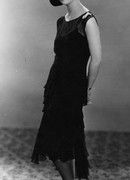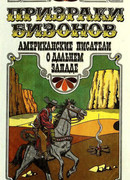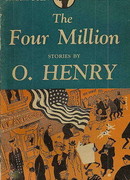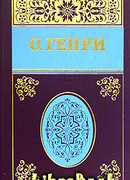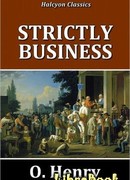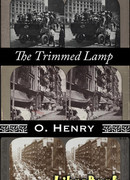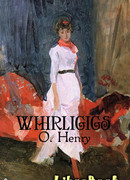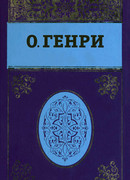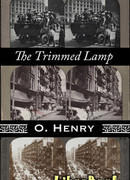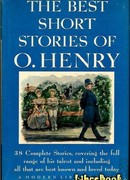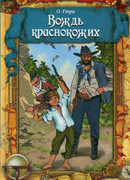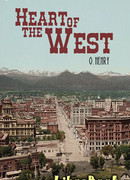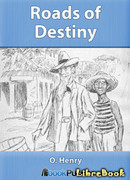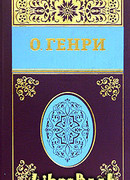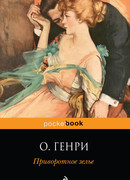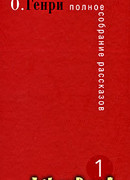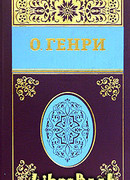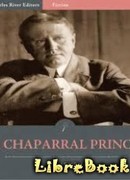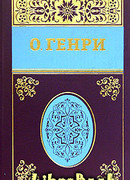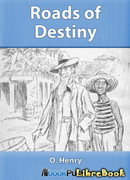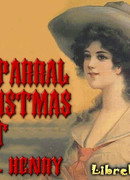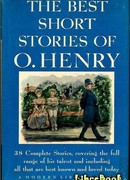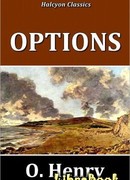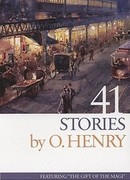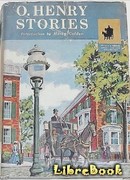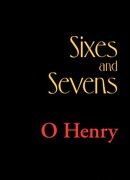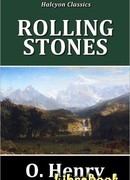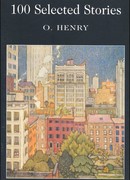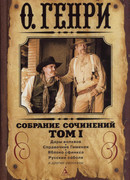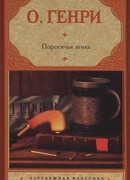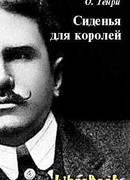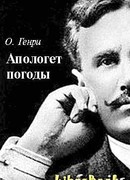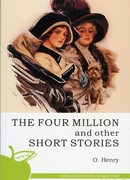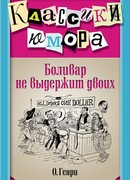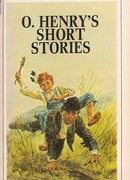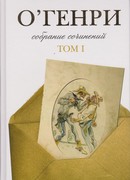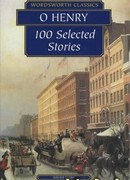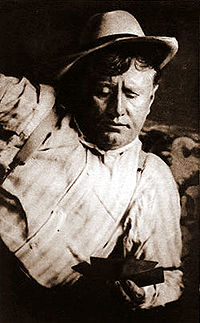Как называется сборник рассказов О. Генри?
Благородный жулик? Сердобольный друг? Знатный благодетель? Вежливый полицейский?
4
Благородный жулик
Сердобольный друг
Знатный благодетель
Вежливый полицейский
#Литература
#Другое
#Сложность: 20
#Пандарина
Похожие вопросы
Как в восточной литературе называется сборник стихов одного автора?
#Литература
#Поэзия
#Универ: Прокачай общагу!
#Сложность: 200
#Пандарина
Как называется сборник рассказов Ивана Бунина?
#Сложность: 10
#Пандарина
Как называется сборник рассказов Ивана Тургенева?
#Сложность: 20
#Пандарина
Как называется сборник рассказов Аркадия Аверченко?
#Сложность: 10
#Пандарина
Случайные вопросы
Какое из этих животных не принадлежит к семейству волчьих?
#Животные
#Биология
#Сложность: 50
#Пандарина
Кого из героев Снегурочка просит научить ее настоящему чувству в последних надеждах? (по мультфильму «Снегурочка»)
#Универ: Прокачай общагу!
За какое достижение ресторан «Арбат» попал в Книгу рекордов Гиннесса?
#Сложность: 100
#Пандарина
Представители какой только одной союзной республики дважды представляли женскую сборную СССР на шахматной олимпиаде?
#Сложность: 20
#Пандарина
О. Генри (англ. O. Henry, настоящее имя Уильям Сидни Портер, англ. William Sydney Porter) — признанный мастер американского рассказа. Его новеллам свойственны тонкий юмор и неожиданные развязки.
Уильям Сидни Портер родился 11 сентября 1862 года в городе Гринсборо, штат Северная Каролина. В трёхлетнем возрасте он лишился матери, умершей от туберкулёза. Позже попал под опеку своей тётки по отцу. После школы учился на фармацевта, работал в аптеке у дяди. Через три года уехал в Техас, пробовал разные профессии — работал на ранчо, служил в земельном управлении. Затем работал кассиром и счетоводом в банке в техасском городе Остине.
Первые литературные опыты относятся к началу 1880-х. В 1894 году Портер начинает издавать в Остине юмористический еженедельник Роллинг Стоун, почти целиком заполняя его собственными очерками, шутками, стихами и рисунками. Через год журнал закрылся, одновременно Портер был уволен из банка и привлечён к суду в связи с недостачей, хотя она и была возмещена его родными.
После обвинения в растрате он полгода скрывался от правоохранителей в Гондурасе, затем — в Южной Америке. По возвращении в США был осуждён и посажен в тюрьму Колумбус штата Огайо, где провёл три года (1898—1901).
В тюрьме Портер работал в лазарете и писал рассказы, подыскивая себе псевдоним. В конце концов, он остановил свой выбор на варианте О. Генри (часто неверно записывается наподобие ирландской фамилии O’Henry — О’Генри). Происхождение его не совсем ясно. Сам писатель утверждал в интервью, что имя Генри взято из колонки светских новостей в газете, а инициал О. выбран как самая простая буква. Одной из газет он сообщил, что О. расшифровывается как Olivier (французское имя Оливье), и действительно, несколько рассказов он опубликовал там под именем Olivier Henry. По другим данным, это имя известного французского фармацевта Этьена Осеана Анри (Etienne Ocean Henry), медицинский справочник которого был популярен в то время. Ещё одну гипотезу выдвинул писатель и учёный Гай Дэвенпорт: «О. Генри» не что иное, как сокращение названия тюрьмы, где сидел автор — Ohio Penitentiary. Первый свой рассказ под этим псевдонимом — «Рождественский подарок Дика-Свистуна», напечатанный в 1899 году в «Журнале Мак Клюра» (Mc Clure’s Magazine), — он написал в тюрьме.
Единственный роман О. Генри — «Короли и капуста» (Cabbages and Kings) — вышел в 1904 году. За ним последовали сборники рассказов: «Четыре миллиона» (The four million, 1906), «Горящий светильник» (The trimmed Lamp, 1907), «Сердце Запада» (Heart of the West, 1907), «Голос города» (The Voice of the City, 1908), «Благородный жулик» (The Gentle Grafter, 1908), «Пути судьбы» (Roads of Destiny, 1909), «Избранное» (Options, 1909), «Точные дела» (Strictly Business, 1910) и «Коловращение» (Whirligigs, 1910).
В конце жизни О. Генри страдал от цирроза печени и диабета. Писатель скончался 5 июня 1910 года в Нью-Йорке.
В сборник «Постскриптумы» (Postscripts), изданный уже после смерти О. Генри, вошли фельетоны, наброски и юмористические заметки, написанные им для газеты «Почта» (Хьюстон, штат Техас, 1895—1896). Всего О. Генри написано 273 рассказа, полное собрание его произведений составляет 18 томов.
Редактировать описание
Список электронных книг на LibreBook, всего 49
Дары волхвов
The Gift of the Magi
реализм
драма
любовь
Джим и Делла супружеская пара, которая живет в очень скромной квартирке. У каждого из них есть нечто очень ценное. У Деллы — великолепная копна волос, струящаяся словно шелк, У Джима — старинные золотые часы, предающиеся в их семье по наследству от отца к сыну. Впереди волшебный праздник Рождества, необходимо подумать о подарках, но денег на них отчаянно не хватает. Наступает Сочельник. Делла увидела в витрине чудесную цепочку для часов — идеальный подарок для Джима. Джим в это время мучительно ищет способ приобрести великолепный гребень для роскошных волос своей возлюбленной. Одна из самых трогательных рождественских историй в мировой литературе. Сентиментальная, драматичная, с искристым финалом.…
1
Online
завершено
Короли и капуста
Cabbages and Kings
юмор
ирония
„Комедия, сшитая из пестрых лоскутьев“, как говорит сам Генри, каламбур, а отгадать загадки предстоит читателю. Добро пожаловать в Анчурию, «банановую республику», президенты которой меняются чаще, чем погода. Последний по имени Милафлорес и вовсе сбежал с певичкой, прихватив при этом из казны 100 тысяч долларов. Правительство же этой обманной страны играет в революции, а население, преимущественно нищее и занятое повальным бездельем, больше всего любит бананы. Американцы, прибывшие сюда, вкусив лучших в мире фруктов, быстро осваиваются и живут в полудреме, подобно мифическим странникам, вкусившим «травы забвения». И все здесь покоится в сонной истоме, нежась в лучах солнца. Но некоторые искатели…
20
Online
Вождь краснокожих
The Ransom of Red Chief
юмор
реализм
Два приятеля, желая сорвать неплохой куш, решаются на похищение десятилетнего мальчика. Но уже при первой встрече, когда друзья-преступники только приглядывались к своей жертве, мальчик заехал камнем прямо в глаз одному из грабителей. Что же будет дальше? © GPX
1
Online
Последний лист
The Last Leaf
реализм
драма
психологический
Заболевшая пневмонией Джонси вбила себе в голову, что будет жить до тех пор, пока не облетят все листья на плюще, который заплел до половины кирпичную стену.
1
Online
Сборник
Благородный жулик
The Gentle Grafter
юмор
ирония
В сборник вошли рассказы:Джефф Питерс как персональный магнитТрест, который лопнулРазвлечения современной деревниКафедра филантроматематикиРука, которая терзает весь мирСупружество как точная наукаСтриженый волСовесть в искусствеКто выше?Поросячья этика
10
Online
Сборник
Антология черного юмора
сатира
юмор
Книга посвящена черному юмору — понятию, во многом сформировавшему современную эстетику, вошедшему и в строгий язык научных работ, и в жаргон популярной культуры. Эта книга является авторской работой лидера сюрреалистов Андре Бретона, но состоит она из «чужих» произведений». В книгу вошли произведения следующих авторов: Джонатан Свифт, Донасьен-Альфонс-Франсуа де Сад, Георг Кристоф Лихтенберг, Шарль Фурье, Томас де Квинси, Пьер Франсуа Ласенер, Кристиан Дитрих Граббе, Петрюс Борель, Эдгар По, Ксавье Форнере, Шарль Бодлер, Льюис Кэрролл, Вилье де Лиль-Адан, Шарль Кро, Фридрих Ницше, Изидор Дюкасс — граф де Лотреамон, Жорис-Карл Гюисманс, Тристан Корбьер, Жермен Нуво, Артюр Рембо, Альфонс Алле,…
49
Online
Дороги, которые мы выбираем
The Roads We Take
реализм
психологический
приключения
«Акула» Додсон и Боб Тидбол, совершив успешное ограбление поезда, остаются с одной лошадью на двоих… © iskender-leon
1
Online
Сборник
Голос большого города
The Voice of the City
юмор
ирония
У всех городов есть свои голоса. Чикаго говорит: «Добьюсь!», Филадельфия: «Надо бы». Новый Орлеан говорит: «В мое время». Луисвилл: «Почему бы и нет». Сент-Луис говорит: «Прошу прощения». Питтсбург говорит: «Подымим?» А вот что говорит Нью-Йорк?
8
Online
Черное платье
The Count and the Wedding Guest
юмор
ирония
Энди Донован время от времени обедал в меблированных комнатах на Второй авеню. В один из таких обедов миссис Скотт познакомила его с новой постоялицей, мисс Конвэй. Небольшого роста, ничем не примечательная, застенчивая девушка не произвела на Энди никакого впечатления. Но однажды, сидя на ступенях крыльца и с наслаждением покуривая сигару, Энди Донован застыл в изумлении, увидев мисс Конвэй другими глазами. Она предстала перед ним в черном воздушном крепдешиновым платье, которое великолепно оттеняло ее пышные золотистые волосы и белую кожу. Тот факт, что девушка облачилась в траур из-за потери возлюбленного, только придал мисс Конвэй дополнительное очарование, перед которым Энди не мог устоять.…
1
Online
Сборник
Призраки бизонов. Американские писатели о Дальнем Западе
приключения
В сборник вошли произведения писателей США (Марк Твен, Брет Гарт, О.Генри, Джек Лондон и др.), посвященные новой эпохе «покорения» и освоения американского Запада. Проза предлагаемых авторов показывает всю иллюзорность надежд простых американцев на свободу и богатство.
30
Online
Сборник
Четыре миллиона
The four million
юмор
драма
О. Генри занимает в американской литературе исключительное место как мастер жанра «короткого рассказа». Произведения О. Генри отличаются изобретательной фабулой, неожиданными развязками, насмешливым юмором. Они образуют сказочно-авантюрную эпопею американской жизни, полную достоверных бытовых примет и метких социальных наблюдений. Подлинный герой О. Генри – «маленький американец» с его правом на счастье. В сборник вошли рассказы: «Дары волхвов», «В антракте», «Комната на чердаке», «Из любви к искусству», «Фараон и хорал», «Золото и любовь», «Неоконченный рассказ», «Сестры золотого кольца», «Роман биржевого маклера», «Мишурный блеск», «Меблированная комната», «Дебют Тильди».
12
Online
Сборник
Собрание сочинений в пяти томах Том 1
юмор
драма
ирония
О. Генри (1862–1910) — псевдоним Вильяма Сиднея Портера, выдающегося американского новеллиста, прославившегося блестящими юмористическими рассказами. За свою недолгую творческую жизнь он написал около 280 рассказов, не считая фельетонов и различных маленьких произведений.В настоящем Собрании впервые в полном объеме публикуются все 13 сборников рассказов О. Генри, а также произведения, не включенные автором в основные сборники. Свыше 40 рассказов переведены на русский язык впервые. В первый том Собрания сочинений вошли повесть «Короли и капуста» (1904), а также сборники рассказов «Четыре миллиона» (1906) и «Горящий светильник» (1907)
4
Online
Сборник
Деловые люди
Strictly Business
сатира
юмор
социальный
ирония
В сборник вошли рассказы: Младенцы в джунглях. Пара мошенников сочла, что на Западе люди как-то поумнели и пора перебираться в поисках простаков на Восток, ближе к огням больших городов… © iskender-leon Город без происшествий. (Другие названия: Провинция; Муниципальный отчет) Главный герой по просьбе знакомого нью-йоркского издателя приезжает в тихий южный городок, где ничего не происходит, чтобы заключить контракт с перспективным, но пока еще никому не известным автором. И, сам того не подозревая, становится участником странных и интригующих событий… © sci-fan Попробовали — убедились (Теория и практика) «Кому что нужно» Когда Тому Кроули осточертело практически все на свете, что можно купить…
4
Online
Горящий светильник
The trimmed Lamp
социальный
реализм
психологический
ирония
Заглавный рассказ из сборника рассказов «Горящий светильник». Две подруги-провинциалки работают в одном из Нью-Йоркских магазинов, надеясь подцепить себе в мужья миллионера. Одной из них повезёт…
1
Online
Сборник
Коловращение
The Whirligigs
драма
ирония
О. Генри занимает в американской литературе исключительное место как мастер жанра «короткого рассказа». Произведения О. Генри отличаются изобретательной фабулой, неожиданными развязками, насмешливым юмором. Они образуют сказочно-авантюрную эпопею американской жизни, полную достоверных бытовых примет и метких социальных наблюдений. Подлинный герой О. Генри – «маленький американец» с его правом на счастье. В сборник вошли рассказы: «Дверь и мир», «Вопрос высоты над уровнем моря», «Вождь краснокожих», «Формальная ошибка», «Коловращение жизни», «Дороги, которые мы выбираем», «Сделка», «Громила и Томми», «Мадам Бо-Пип на ранчо».
1
Online
Сборник
Собрание сочинений в пяти томах. Том 5
юмор
драма
ирония
В пятый том Собрания сочинений вошли сборники рассказов «Под лежачий камень», «Остатки», «Постскриптумы», а также цикл рассказов «Еще раз О. Генри».
5
Online
завершено
Сборник
Горящий светильник
The Trimmed Lamp
юмор
социальный
философский
ирония
В сборник вошли рассказы: Горящий светильник Две подруги-провинциалки работают в одном из Нью-Йоркских магазинов, надеясь подцепить себе в мужья миллионера. Одной из них повезёт… © iskender-leon Маятник Джон Перкинс не застал дома свою жену. Это довольно рядовое событие настолько выдернуло его из привычного круговорота времени, что он вдруг понял, насколько несправедлив был к супруге… © iskender-leon Во имя традиции У американцев тоже есть свои традиции, которыми они дорожат. Одна из них — это возможность накормить бездомного в День Благодарения. © an2001 Русские соболя Хотите сделать своей даме роскошный подарок? Дарите Русских Соболей, от них цыпочки хорошеют прямо на глазах — разрумянившиеся…
8
Online
Королева змей
An afternoon miracle
юмор
приключения
вестерн
Коротенький юмористический рассказ о’Генри «Королева змей» начинается с дежурства четырех вооруженных стражников на мосту. Причиной тому — Леандро Гарсиа, дерзкий мексиканец, пообещавший прийти в течении 24 часов за расплатой к хозяину пивной, в которой устроил пьяный дебош. Помимо всего, бандит является храбрым малым, прославившимся на обоих берегах реки. Обхитрив стражников, и пробравшись к обидчику, мексиканец вскоре выходит на след молодой красавицы Альвариты — королевы змей. Девушка оказывается в затруднительном положении, ведь рядом никого нет. Лишь провидение сможет решить ее судьбу. Не смотря на то, что рассказ является небольшим, читателям в нем открывается борьба двух противоположностей…
1
Online
Персики
Little Speck in Garnered Fruit
реализм
ирония
любовь
Рассказ «Персики» заслужено считается одним из лучших в творчестве О.Генри. Впервые он был опубликован в сборнике «Голос большого города» (1908 год). Герой рассказа Малыш Мак-Гарри переживает невероятные приключения только ради того, чтобы поздним февральским вечером раздобыть для своей молодой жены персик, который она пожелала. Его поступок служит ярким примером того, на что готов пойти мужчина ради своей возлюбленной. Развязка рассказа, что характерно для произведений этого писателя, необычна и иронична.
1
Online
завершено
Сборник
Сердце запада
Heart of the West
юмор
драма
ирония
«Сердце 3апада» (1907) — один из лучших авторских сборников знаменитого американского писателя О.Генри (1862—1910), созданный на основе его воспоминаний о собственной ковбойской юности, прошедшей на техасском ранчо. Выведенная О.Генри галерея героев весьма примечательна: это головорезы, грабители, налетчики на поезда и т.д. Однако всем им, тем не менее, ведомы высокие порывы души. И, знакомясь с этими персонажами, мы становимся хоть немного да лучше. Так бывает всегда, когда книга несет свет. В сборник вошли рассказы: Сердце и крест Выкуп Друг — Телемак Справочник Гименея Пимиентские блинчики Санаторий на ранчо Купидон A La Carte Яблоко сфинкса Пианино По первому требованию Принцесса и пума Бабье…
12
Online
Дороги судьбы
Roads of Destiny
юмор
философский
психологический
ирония
Любовь читателей к искрящимся юмором новеллам О.Генри связанна не столько с изображением повседневных событий, сколько с неожиданным их финалом. Ироничный, но глубоко сочувствующий своим героям: ковбоям, мелким клеркам, продавщицам цветочных магазинов, — он смотрит на них с грустной улыбкой, порождающей его неповторимый добрый юмор. В привычном ряду, новелла «Дороги судьбы» стоит особняком. Она описывает не комичную ситуацию, в которую попадает герой, судьбоносный момент, определяющий весь дальнейший ход жизни. Эта аллегорическая история предлагает главному герою выбор не столько между разными судьбами, как между разными версиями одной и той же судьбы. Итак, деревенский пастух и поэт-любитель…
1
Online
Сборник
Online
Чародейные хлебцы
Witches’ Loaves
реализм
Мисс Марта Мичем содержала маленькую булочную и тихо вела свою одинокую жизнь. Но все изменилось, когда в двери булочной пришел приятный немолодой немец и попросил черствую булку. © Vicca
1
Online
Джимми Хейз и Мьюриэл
Jimmy Hayes and Muriel
реализм
психологический
В полуэскадрон техасского пограничного батальона прибывает новичок по имени Джимми Хейз. Забавы ради Джимми везде возил с собой Мьюриэл – ручную рогатую лягушку с красной ленточкой на шее. И, хотя это обстоятельство позволило парню быстро стать всеобщим любимцем в походном лагере, один вопрос по-прежнему волновал его товарищей: как Джимми поведет себя, оказавшись в настоящем бою? © white noise
1
Online
Пимиентские блинчики
The Pimienta Pancakes
ирония
Иногда попытка выведать рецепт вкусных блинчиков может привести к неожиданных последствиям. © Vicca
1
Online
Сборник
Online
Сказочный принц
A chapparral prince
вестерн
приключения
Одиннадцатилетняя Лена работает в гостинице, не покладая рук. Она вынуждена мыть полы, убирать постели, перемывать тяжелые металлические кружки и тарелки, таскать воду и дрова. Девочка мечтает о сказочном принце, который ворвется в гостиницу и освободит ее. © Vicca
1
Online
Справочник Гименея
The Handbook of Hymen
юмор
Два приятеля застряли в небольшой хижине в занесённых снегом Кордильерах на всю зиму. К счастью в хижине нашлось две книги: сборник поэзии Омара Хаяма и статистический справочник — каждому по книге. Кому же из них повезло больше?
1
Online
Сборник
Собрание сочинений в пяти томах Том 2
юмор
ирония
Во второй том Собрания сочинений вошли сборники рассказов «Сердце Запада» (1907), «Голос большого города» (1908), «Благородный жулик» (1908).
36
Online
Сборник
Дороги судьбы
Roads of Destiny
юмор
социальный
философский
психологический
ирония
В сборник вошли рассказы: Дороги судьбы Поэт-пастух Давид, поссорившись с Ивонной решил уйти из деревни. Он стоит на перепутье дорог и не знает, в какую сторону ему повернуть… © Vicca Волшебный профиль Мэгги Браун стоит сорок миллионов долларов и вместе с тем просто ужасающая скряга. Ида Бэйтс прелестная молодая особа и всего лишь стенографистка. Невероятно, но первая стала испытывать ко второй прямо таки материнские чувства… © iskender-leon «Среди текста» Так что же на самом деле играет самую важную роль в покорении женщины — смазливая внешность, или бархатный голос и «язык без костей»? © kokina Гнусный обманщик Малыш убил человека и решил скрыться на необъятных просторах Южной Америки.…
6
Online
Рождественский подарок по–ковбойски
A Chaparral Christmas Gift
ирония
вестерн
Джонни Мак-Рой, более известный как Малыш из Фрио, поклялся отмстить своему удачливому сопернику, отбившему у него Розиту Мак-Меллэн. Для исполнения задуманного он выбрал день Рождества… © iskender-leon
1
Online
Адское пламя
The Plutonian Fire
реализм
психологический
ирония
Уильям Сидни Портер (О. Генри) был самым популярным новеллистом своего времени. Его истории, как правило, вращались вокруг двух его любимых тем, положение, при котором человек выдает себя за другого в прямом или переносном смысле и тем судьбы как неизбежной реальности жизни. К его любимым прием можно отнести неожиданный финал, как правило, через удивительное совпадение. Он был основателем юмористического еженедельника, репортером, посидел в тюрьме за растрату, и там начал писать короткие рассказы, принесшие ему мировую известность. Крохотный рассказ «Адское пламя2 дает представление о том величайшем мастерстве и таланте, которым обладал писатель. Опубликовав восемь рассказов в родной Алабаме,…
1
Online
В Аркадии проездом
Transients In Arcadia
юмор
реализм
ирония
На Бродвее есть отель, который еще не успели обнаружить любители летних курортов. Он обширен и прохладен. Номера его отделаны темным дубом, холодным даже в полуденный зной. Ветерки домашнего изготовления и темно-зеленые живые изгороди дарят ему все прелести Адирондакских гор без присущих им неудобств. Рассказ входит в сборник «Голос большого города» (1908).
1
Online
Сборник
На выбор
Options
юмор
драма
ирония
О. Генри занимает в американской литературе исключительное место как мастер жанра «короткого рассказа». Произведения О. Генри отличаются изобретательной фабулой, неожиданными развязками, насмешливым юмором. Они образуют сказочно-авантюрную эпопею американской жизни, полную достоверных бытовых примет и метких социальных наблюдений. Подлинный герой О. Генри – «маленький американец» с его правом на счастье. В сборник вошли рассказы:» Третий ингредиент», «Как скрывался черный Билл», «Разные школы», «Клад», «Без вымысла», «Негодное правило».
6
Online
Эльза в Нью-Йорке
Elsie in New York
У Эльзи, после продолжительной болезни, скончался отец, служивший в одной весьма уважаемой фирме. В наследство остался 1 доллар и письмо хозяина фирмы с обещанием оказать помощь. Но Эльзи красива и энергична, готова сама найти работу и устроить свою жизнь, правда вокруг так много добрых людей, спешащих защитить её от «происков дьявола»…
1
Online
На пароме
The Ferry of Unfulfilment
юмор
Человек из Номи страстно желает познакомиться с привлекательной девушкой на пароме. Одно его беспокоит — сможет она полюбить его, а не его деньги? © Vicca
1
Online
Сборник
Шестёрки — семёрки
Sixes and Sevens
юмор
ирония
«Шестёрки — семёрки» (англ. Sixes and Sevens) — посмертный неавторский сборник рассказов О. Генри 1911 года. В русском переводе более известен как «Всего понемножку». О. Генри занимает в американской литературе исключительное место как мастер жанра «короткого рассказа». Произведения О. Генри отличаются изобретательной фабулой, неожиданными развязками, насмешливым юмором. Они образуют сказочно-авантюрную эпопею американской жизни, полную достоверных бытовых примет и метких социальных наблюдений. Подлинный герой О. Генри – «маленький американец» с его правом на счастье. В сборник вошли рассказы: «Чародейные хлебцы», «Улисс и собачник», «Родственные души», «Призрак возможности», «Джимми Хейз и Мьюриэл».
5
Online
Сборник
Под лежачий камень
Rolling Stones
юмор
драма
О. Генри занимает в американской литературе исключительное место как мастер жанра «короткого рассказа». Произведения О. Генри отличаются изобретательной фабулой, неожиданными развязками, насмешливым юмором. Они образуют сказочно-авантюрную эпопею американской жизни, полную достоверных бытовых примет и метких социальных наблюдений. Подлинный герой О. Генри – «маленький американец» с его правом на счастье. В сборник вошли рассказы: «Маркиз и мисс Салли», «Туман в Сан-Антонио», «На помощь, друг!».
3
Online
Страна иллюзий
The Country of Elusion
юмор
Так ли счастливы и довольны своей жизнью те, кого принято считать богемой?
1
Online
Друг Телемак
Telemachus, Friend
реализм
ирония
Однажды Телемака Хикса спросили, кто ему так обезобразил левое ухо. В ответ Хикс рассказал удивительную историю верной дружбы. © GPX
1
Online
Искатели приключений
The Venturers
реализм
психологический
ирония
Есть скучные городские жители, а есть те, кто бросается в омут с открытым забралом. Но даже кругосветные путешествия и охота на слонов меркнут перед настоящим приключением. © prival89
1
Online
Сиденья для королей
В 1903 году бывший кассир, аптекарь и заключенный Уильям Сидни Портер, взявший себе псевдоним О. Генри, заключил договор с газетой New York World, по которому он должен был каждое воскресенье давать туда по рассказу за гонорар в сто долларов. Cпустя более 100 лет публикуем один из его «стодолларовых» рассказов, ранее не публиковавшихся в России.
1
Online
Апологет погоды
В 1903 году бывший кассир, аптекарь и заключенный Уильям Сидни Портер, взявший себе псевдоним О. Генри, заключил договор с газетой New York World, по которому он должен был каждое воскресенье давать туда по рассказу за гонорар в сто долларов. Cпустя более 100 лет публикуем один из его «стодолларовых» рассказов, ранее не публиковавшихся в России.
1
Online
Кудряш
The higher abdiction
ирония
Бродяга Кудряш заснул на мягких мешках и оказался на ранчо. Здесь Ренси хочет сделать из него человека. © Vicca
1
Online
Бляха полицейского О’Руна
The Badge of Policeman O’Roon
реализм
психологический
ирония
Существует ли любовь с первого взгляда? Несомненно. И Элсворт Рэмзен, прогуливаясь по улицам родного Нью-Йорка, убедился в этом. А еще ему предстоит выяснить, как много для него значат сохранение чести товарища и старая боевая дружба. © Dm-c
1
Online
Из Омара
The Rubaiyat of a Scotch Hihball
юмор
Боб Баббит служащий адвокатской конторы, а вечерами завсегдатай баров Бродвея, где проводит время с друзьями из богемы. Однажды он понимает, что вечера он посвящает пьянству, что шутки его плоски, а разговоры — пустая болтовня… © Dm-c
1
Online
Утерянный рецепт
The Lost Blend
реализм
Рили и Мак-Кирк случайно создали потрясающий алкогольный коктейль, но не помнят, как именно они это сделали. И сейчас они переводят деньги и время, пытаясь воссоздать утерянный рецепт. © Vicca
1
Online
Поставщик седел
Seats of the haughty
юмор
На русском языке под названием «Около сильных мира сего» в книге: О. Генри. Сердце Запада. Пг., 1915. Входит в: — сборник «Сердце Запада», 1907 г.
1
Online
Затруднения с кредитом
Hard to Credit
фантастика
Данное произведение входит в состав сборника «Обратная связь».Это сборник научно-фантастических произведений писателей Великобритании, ГДР и США, посвящённых компьютерной тематике.
Все категории
- Фотография и видеосъемка
- Знания
- Другое
- Гороскопы, магия, гадания
- Общество и политика
- Образование
- Путешествия и туризм
- Искусство и культура
- Города и страны
- Строительство и ремонт
- Работа и карьера
- Спорт
- Стиль и красота
- Юридическая консультация
- Компьютеры и интернет
- Товары и услуги
- Темы для взрослых
- Семья и дом
- Животные и растения
- Еда и кулинария
- Здоровье и медицина
- Авто и мото
- Бизнес и финансы
- Философия, непознанное
- Досуг и развлечения
- Знакомства, любовь, отношения
- Наука и техника
0
Как называется сборник рассказов О. Генри (см. варианты)?
- «Знатный благодетель»
- «Вежливый полицейский»
- «Сердобольный друг»
- «Благородный жулик»
5 ответов:
4
0
Кто хоть раз читал рассказы О.Генри никогда не забудет их неповторимого юмора и особого необычного стиля автора. И если даже никогда не вспомнит точного названия, то всегда сделает правильный выбор из нескольких вариантов. И в данном случае — он очевиден:
Сборник рассказов О.Генри называется «Благородный жулик» последний вариант.
2
0
Сборник рассказов О. Генри называется «Благородный жулик», который вышел в 1908 году в Нью-Йорке.
Автор сборника, О. Генри родился 11 сентября 1862 года в Гринсборо. Он являлся признанным мастером американского рассказа.
1
0
Мне кажется название сборника «Благородный жулик«
1
0
Из упомянутого — Благородный жулик, Но , по-моему более известен — Короли и капуста.
1
0
О.Генри — американский писатель, чья жизнь сама похожа на роман. Будучи обычным обывателем, этот человек попадает в жернова правосудия. Его обвиняют в недостаче в банке, он убегает. Но узнав о смерти жены, приезжает с ней проститься, и тут его арестовывают. Не было бы счастья, да несчастье помогло. Не имея денег на новогодний подарок дочери, мужчина пишет рассказ. Его публикуют, и деньги от публикации служат для подарка девочке.
И тут проснулся талант. И мы знаем прекрасного писателя О.Генри, книги которого полны юмора и радостного восприятия жизни.
Сборник рассказов носил название «Благородный жулик».
Читайте также
Иван Тимофеевич Кокорев мало знаком широкому кругу читателей, однако оставленные им литературное наследие достаточно интересно и даёт представление о жизни низших сословия Москвы в XIX веке.
Иван Тимофеевич родился в 1826 году в городе Зарайске Рязанской губернии. Происходил из крепостныз-вольноотп<wbr />ушенных. В раннем детстве был привезён в Москву старшим братом Николаем.
Из-за скудности средств не полу, ил полноценного образования и с 1841 начал зарабатывать на жизнь написанием статей и очерков. Печатал я в журнале «Москвитянин» и других изданиях.
Получил признание как талантливый очерки и бытописатель, сумевшим подробно и интересно рассказать про быт и мировоззрение «низких» людей: кучеров, кухарок, офень, старьевщиков и др.
Наиболее известная книга Кокорев «Москва сороковых годов».
Умер Иван Тимофеевич рано, в 1853году: по всей видимости, от бедности и напряженной умственной работы случился серьёзный сбой в нервной системе. Причина смерти писателя «тяжёлая нервная горячка».
После его смерти был издан сборник в трех частях, включающий в себя его очерки и рассказы. Аполлон Григорьевич и Николай Дрбролюбов давали положительные оценки творчеству Кокорев и сожалели о его преждевременной кончине.
Синквейны к рассказу Е. Чарушина «Кабан»:
зоосад
красивый, природный,
приглашает, вдохновляет, удивляет.
В зоосаде обитают много животных.
природа.
<hr />
Художник
творческий, пугливый
рисует, наблюдает, пугается
Художник хотел нарисовать оленя.
Стыдно.
<hr />
Кабаны
дикие, устрашающие
пришли, напугали, побежали
Диких кабанов можно приручить.
Открытие.
<hr />
Мальчик.
бесстрашный, ловкий
пришел, позвал, удивил
Не боится кабанов.
Молодец!
Когда читаешь Юрия Казакова, то особое отношение, просто какое-то трепетное, нежное, с каким и сам автор и писал эти рассказы, возникает к этим двум рассказам, связанным с сыном писателя.
Я не знаю в литературе ещё такого удивительного текста.
Такого нежного, трепетного, потрясающе внимательного отношения к маленькому своему сыну. Разве что сравнить можно с портретом сына, написанным художником Тропининым. Сравнить с тем же впечатлением от огромной любви отца к своему сыну.
Я могу лишь для сравнения привести ещё одно произведение другого выдающегося мастера новеллы — Натаниэля Готорна. Его «Двадцать дней с Джулианом и Зайчиком».
Но и при всей схожести с этой историей рассказы Юрия Казакова тоньше, волнительнее и просто гениальнее в своей простоте, в своей бесконечной любви к маленькому существу, за которое отвечаешь, болеешь, за которым с таким изумлением наблюдаешь ежесекундно.
Эти рассказы надо читать обязательно, читать и перечитывать.
Мне кажется, современным детям лучше идут современные писатели. У них сюжет динамичный, длинных описаний нет, подростки воспринимают куда лучше, чем авторов, писавшие 50-70 лет назад. Та же Дж.Роулинг. «Гарри Поттер» весьма хорош, все семь книг, можно начинать и не с первой книги, там в начале дается краткое содержание, и понятно, о чем речь, даже если фильм ребенок не видел и предыдущие книги не читал.
Лукьяненко пишет очень увлекательно, собственно для детей у него «Непоседа» и «Недотепа», но вот мой 12-летний мальчик читает и, к примеру, «Квази», все вполне пристойно, любовная линия есть, но все нормально для такого возраста. Так что Лукьяненко в 12 лет можно, я думаю, практически все читать.
Тамара Крюкова пишет очень интересно, язык хороший, для этой возрастной группы у нее «Ловушка для героя», «Волшебница с острова гроз».
Ну и, конечно, Терри Пратчетт. Вполне можно читать в 12 лет. «Стража, стража» можно вполне, но собственно из детского у него подцикл про Тиффани Болен из цикла «Плоский мир». Как раз девочка главная героиня. Интересно и с юмором.
Если списком:
- Дж. Роулинг «Гарри Поттер» все книги
- Лукьяненко «Непоседа»
- Т. Крюкова «Волшебница с острова гроз»
- Т. Пратчетт «Шляпа, полная неба» и др. из цикла про Тиффани Болен.
Очень интересный вопрос! Вспоминаю себя, я не только любила слушать, что обо мне маленькой рассказывали, я и сама искала свою историю: смотрела давнишние фото и читала письма своих родителей. Такое поведение вполне нормально и закономерно, ведь многое из своего детства мы помним плохо, а большую часть вообще забыли, как будто, нас не существовало лет до 4-5. Совсем редко, встретишь людей, помнивших себя с трехлетнего возраста. Наше младенчество и раннее детство осталось для нас тайной, скрытой за семью замками. Именно поэтому, я решила завести специальную тетрадь, когда родилась моя дочурка. Я вписывала в нее ее первоначальные показатели при рождении, ее первые звуки, слова, осознанные движения, все интересные случаи из ее жизни, что она любили, а что, нет, ее вопросы и ответы и многое другое. Сохранила ее первый выпавший зубик, первый рисунок, первые записи, первую «пятерку», ее первый чепчик и распашонку. Все это помогло дочке увидеть себя и сравнить, какой она была, и какой стала теперь. Ей почти 16 лет, и эту тетрадку(без вещей, конечно), хранит у себя в столе, потому что, часто перечитывает свою историю.
Знаете, подобное отношение людей к своему детству, еще раз убеждает меня, что люди были созданы и подобные потребности, изначально были в нас вложены Творцом. А как Вы считаете?
Сборник рассказов О.Генри.
Добрый вечер! Здравствуйте, уважаемые дамы и господа! Пятница! В эфире капитал-шоу «Поле
чудес»! И как обычно, под аплодисменты зрительного зала я приглашаю в студию тройку
игроков.
А вот и задание на этот тур:
Вопрос: Сборник рассказов О.Генри.
(Слово из 12 букв)
Ответ:
Коловращение
(12 букв)
Если этот ответ не подходит, пожалуйста воспользуйтесь
формой поиска.
Постараемся найти среди 775 682
формулировок по
141 989 словам
.
Оцени полезность материала:
Еще определения
- Беспрерывное движение, изменение чего-либо.
- Круговое вращение, круговорот
|
William Sidney Porter |
|
|---|---|
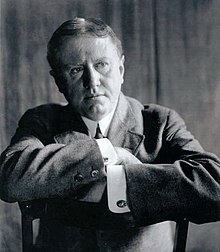
Portrait by W. M. Vanderweyde (1909) |
|
| Born | William Sidney Porter September 11, 1862 Greensboro, North Carolina, C.S. |
| Died | June 5, 1910 (aged 47) New York City, U.S. |
| Resting place | Riverside Cemetery, Asheville, NC |
| Pen name | O. Henry, Olivier Henry, Oliver Henry[1] |
| Occupation | Writer |
| Genre | Short story |
William Sydney Porter (September 11, 1862 – June 5, 1910), better known by his pen name O. Henry, was an American writer known primarily for his short stories, though he also wrote poetry and non-fiction. His works include «The Gift of the Magi», «The Duplicity of Hargraves», and «The Ransom of Red Chief», as well as the novel Cabbages and Kings. Porter’s stories are known for their naturalist observations, witty narration, and surprise endings.
Porter’s legacy includes the O. Henry Award, an annual prize awarded to outstanding short stories.
Biography[edit]
Early life[edit]
William Sidney Porter was born on September 11, 1862, in Greensboro, North Carolina, during the American Civil War. He changed the spelling of his middle name to Sydney in 1898. His parents were Algernon Sidney Porter (1825–88), a physician, and Mary Jane Virginia Swaim Porter (1833–65). William’s parents had married on April 20, 1858. When William was three, his mother died after giving birth to her third child, and he and his father moved into the home of his paternal grandmother. As a child, Porter was always reading, everything from classics to dime novels; his favorite works were Lane’s translation of One Thousand and One Nights and Burton’s Anatomy of Melancholy.[2]
Porter graduated from his aunt Evelina Maria Porter’s elementary school in 1876. He then enrolled at the Lindsey Street High School. His aunt continued to tutor him until he was 15. In 1879, he started working in his uncle’s drugstore in Greensboro, and on August 30, 1881, at the age of 19, Porter was licensed as a pharmacist. At the drugstore, he also showed his natural artistic talents by sketching the townsfolk.
Life in Texas[edit]
Porter as a young man in Austin
Porter traveled along with James K. Hall to Texas in March 1882, hoping that a change of air would help alleviate a persistent cough he had developed. He took up residence on the sheep ranch of Richard Hall, James Hall’s son, in La Salle County and helped out as a shepherd, ranch hand, cook, and baby-sitter. While on the ranch, he learned bits of Spanish and German from the mix of indigenous and immigrant ranch hands. He also spent time reading classic works of literature.
Porter’s health did improve. He traveled with Richard to Austin, Texas, in 1884, where he decided to remain and was welcomed into the home of Richard’s friends, Joseph Harrell and his wife. Porter resided with the Harrells for three years. He went to work briefly for the Morley Brothers Drug Company as a pharmacist. Porter then moved on to work for the Harrell Cigar Store located in the Driskill Hotel. He also began writing as a sideline and wrote many of his early stories in the Harrell house.
As a young bachelor, Porter led an active social life in Austin. He was known for his wit, story-telling and musical talents. He played both the guitar and mandolin. He sang in the choir at St. David’s Episcopal Church and became a member of the «Hill City Quartette», a group of young men who sang at gatherings and serenaded young women of the town.
The Porter family, early 1890s – Athol, daughter Margaret, William
Porter met and began courting Athol Estes, 17 years old and from a wealthy family. Historians believe Porter met Athol at the laying of the cornerstone of the Texas State Capitol on March 2, 1885. Her mother objected to the match because Athol was ill, suffering from tuberculosis. On July 1, 1887, Porter eloped with Athol and they were married in the parlor of the home of the Reverend R. K. Smoot, pastor of the Central Presbyterian Church, where the Estes family attended church. The couple continued to participate in musical and theater groups, and Athol encouraged her husband to pursue his writing. Athol gave birth to a son in 1888, who died hours after birth, and then daughter Margaret Worth Porter in September 1889.
Porter’s friend Richard Hall became Texas Land Commissioner and offered Porter a job. Porter started as a draftsman at the Texas General Land Office (GLO) on January 12, 1887, at a salary of $100 a month, drawing maps from surveys and fieldnotes. The salary was enough to support his family, but he continued his contributions to magazines and newspapers. In the GLO building, he began developing characters and plots for such stories as «Georgia’s Ruling» (1900), and «Buried Treasure» (1908). The castle-like building he worked in was woven into some of his tales such as «Bexar Scrip No. 2692» (1894). His job at the GLO was a political appointment by Hall. Hall ran for governor in the election of 1890 but lost. Porter resigned on January 21, 1891, the day after the new governor, Jim Hogg, was sworn in.
Porter as a clerk at the First National Bank in Austin, c. 1892
The same year, Porter began working at the First National Bank of Austin as a teller and bookkeeper at the same salary he had made at the GLO. The bank was operated informally, and Porter was apparently careless in keeping his books and may have embezzled funds. In 1894, he was accused by the bank of embezzlement and lost his job but was not indicted at the time.
He then worked full-time on his humorous weekly called The Rolling Stone, which he started while working at the bank. The Rolling Stone featured satire on life, people, and politics and included Porter’s short stories and sketches. Although eventually reaching a top circulation of 1,500, The Rolling Stone failed in April 1895 because the paper never provided an adequate income. However, his writing and drawings had caught the attention of the editor at the Houston Post.
Porter and his family moved to Houston in 1895, where he started writing for the Post. His salary was only $25 a month, but it rose steadily as his popularity increased. Porter gathered ideas for his column by loitering in hotel lobbies and observing and talking to people there. This was a technique he used throughout his writing career.
While he was in Houston, federal auditors audited the First National Bank of Austin and found the embezzlement shortages that led to his firing. A federal indictment followed, and he was arrested on charges of embezzlement.
Flight and return[edit]
After his arrest, Porter’s father-in-law posted his bail. He was due to stand trial on July 7, 1896, but the day before, as he was changing trains to get to the courthouse, he got scared. He fled, first to New Orleans and later to Honduras, with which the United States had no extradition treaty at that time. Porter lived in Honduras for six months, until January 1897. There he became friends with Al Jennings, a notorious train robber, who later wrote a book about their friendship.[3] He holed up in a Trujillo hotel, where he wrote Cabbages and Kings.
Porter had sent Athol and Margaret back to Austin to live with Athol’s parents. Unfortunately, Athol became too ill to meet Porter in Honduras as he had planned. When he learned that his wife was dying, Porter returned to Austin in February 1897 and surrendered to the court, pending trial. Athol Estes Porter died from tuberculosis (then known as consumption) on July 25, 1897.
Porter had little to say in his own defense at his trial and was found guilty on February 17, 1898, of embezzling $854.08. He was sentenced to five years in prison and imprisoned on March 25, 1898, at the Ohio Penitentiary in Columbus, Ohio. Porter was a licensed pharmacist and was able to work in the prison hospital as the night druggist. He was given his own room in the hospital wing, and there is no record that he actually spent time in the cell block of the prison. He had 14 stories published under various pseudonyms while he was in prison but was becoming best known as «O. Henry», a pseudonym that first appeared over the story «Whistling Dick’s Christmas Stocking» in the December 1899 issue of McClure’s Magazine. A friend of his in New Orleans would forward his stories to publishers so that they had no idea that the writer was imprisoned.
Porter was released on July 24, 1901, for good behavior after serving three years. He reunited with his daughter Margaret, now age 11, in Pittsburgh, Pennsylvania, where Athol’s parents had moved after Porter’s conviction.
Later life and death[edit]
Porter’s most prolific writing period started in 1902, when he moved to New York City to be near his publishers. While there, he wrote 381 short stories. He wrote a story a week for over a year for the New York World Sunday Magazine. His wit, characterization, and plot twists were adored by his readers but often panned by critics.
Porter married again in 1907 to childhood sweetheart Sarah (Sallie) Lindsey Coleman, whom he met again after revisiting his native state of North Carolina. Coleman was herself a writer and wrote a romanticized and fictionalized version of their correspondence and courtship in her novella Wind of Destiny.[4]
Porter was a heavy drinker, and by 1908, his markedly deteriorating health affected his writing. In 1909, Sarah left him, and he died on June 5, 1910, of cirrhosis of the liver, complications of diabetes, and an enlarged heart. According to one account, he died of cerebral hemorrhage.[5]
After funeral services in New York City, he was buried in the Riverside Cemetery in Asheville, North Carolina.[6] His daughter Margaret Worth Porter had a short writing career from 1913 to 1916. She married cartoonist Oscar Cesare of New York in 1916; they were divorced four years later. She died of tuberculosis in 1927 and was buried next to her father.
Stories[edit]
Most of Porter’s stories are set in his own time, the early 20th century. He had an obvious affection for New York City, which he called «Bagdad-on-the-Subway»,[7] and many of his stories are set there, while others are set in small towns or in other cities. They frequently feature working class characters, such as policemen and waitresses, as well as criminals and social outcasts. In his day he was called the American answer to French naturalist Guy de Maupassant, whose work was similarly concerned with the struggles of common people and often had twist endings.
Cabbages and Kings was his first collection of stories, followed by The Four Million. The second collection opens with a reference to Ward McAllister’s claim that there were «…only ‘Four Hundred’ people in New York City who were really worth noticing. But a wiser man has arisen—the census taker—and his larger estimate of human interest has been preferred in marking out the field of these little stories of the Four Million.»
His final work was «Dream», a short story intended for the magazine The Cosmopolitan. It was never completed.[8]
Among his most famous stories are:
- «The Gift of the Magi» is about a young couple, Jim and Della, who are short of money but desperately want to buy each other Christmas gifts. Unbeknownst to Jim, Della sells her most valuable possession, her beautiful hair, in order to buy a platinum fob chain for Jim’s watch; while unbeknownst to Della, Jim sells his own most valuable possession, his watch, to buy jeweled combs for Della’s hair. The essential premise of this story has been copied, re-worked, parodied, and otherwise re-told countless times in the century since it was written.
- «The Ransom of Red Chief» in which two men kidnap a boy of ten years old to ransom him. The boy turns out to be so spoiled and obnoxious that the desperate men ultimately pay the boy’s father $250 to take him back.
- «The Cop and the Anthem» about a New York City hobo named Soapy who sets out to get arrested so that he can be a guest of the city jail instead of sleeping out in the cold winter. Despite his best efforts at committing petty theft, vandalism, disorderly conduct, and «flirting» with a young prostitute, Soapy fails to draw the attention of the police. Dejected, he stops in front of a church, where an organ anthem inspires him to clean up his life; however, he is charged with loitering, and sentenced to three months in prison.
- «A Retrieved Reformation» tells the tale of safecracker Jimmy Valentine, a man recently freed from prison. He goes to a town bank to case it before he robs it. As he walks to the door, he catches the eye of the banker’s beautiful daughter. They immediately fall in love and Valentine decides to give up his criminal career. He moves into the town, taking up the identity of Ralph Spencer, a shoemaker. Just as he is about to leave to deliver his specialized tools to an old associate, a lawman who recognizes him arrives at the bank. Jimmy and his fiancée and her family are at the bank, inspecting a new safe when a child accidentally gets locked inside the airtight vault. Knowing it will seal his fate, Valentine opens the safe to rescue the child. However, much to Valentine’s surprise, the lawman denies recognizing him and lets him go.
- «The Duplicity of Hargraves» tells the story of the Talbots, a father and daughter from the Old South who move to Washington, DC, newly poor after the Civil War. An actor, Hargraves, offers Mr. Talbot money, which he is too proud to accept. But when Talbot is approached by an old man, a former slave who gives him money to settle an old family debt, he accepts it. It is later revealed that Hargraves secretly portrayed the slave.
- «The Caballero’s Way» in which Porter’s most famous character, the Cisco Kid, is introduced. It was first published in 1907 in the July issue of Everybody’s Magazine and collected in the book Heart of the West that same year. In later film and TV depictions, the Kid would be portrayed as a dashing adventurer, perhaps skirting the edges of the law, but primarily on the side of the angels. In the original short story, the only story by Porter to feature the character, the Kid is a murderous, ruthless border desperado, whose trail is dogged by a heroic Texas Ranger.
Pen name[edit]
Porter used a number of pen names (including «O. Henry» or «Olivier Henry») in the early part of his writing career; other names included S.H. Peters, James L. Bliss, T.B. Dowd, and Howard Clark.[9] Nevertheless, the name «O. Henry» seemed to garner the most attention from editors and the public, and was used exclusively by Porter for his writing by about 1902. He gave various explanations for the origin of his pen name.[10] In 1909, he gave an interview to The New York Times, in which he gave an account of it:
It was during these New Orleans days that I adopted my pen name of O. Henry. I said to a friend: «I’m going to send out some stuff. I don’t know if it amounts to much, so I want to get a literary alias. Help me pick out a good one.» He suggested that we get a newspaper and pick a name from the first list of notables that we found in it. In the society columns we found the account of a fashionable ball. «Here we have our notables,» said he. We looked down the list and my eye lighted on the name Henry, «That’ll do for a last name,» said I. «Now for a first name. I want something short. None of your three-syllable names for me.» «Why don’t you use a plain initial letter, then?» asked my friend. «Good,» said I, «O is about the easiest letter written, and O it is.»
A newspaper once wrote and asked me what the O stands for. I replied, «O stands for Olivier, the French for Oliver.» And several of my stories accordingly appeared in that paper under the name Olivier Henry.[11]
William Trevor writes in the introduction to The World of O. Henry: Roads of Destiny and Other Stories (Hodder & Stoughton, 1973) that «there was a prison guard named Orrin Henry» in the Ohio State Penitentiary «whom William Sydney Porter … immortalised as O. Henry».
According to J. F. Clarke, it is from the name of the French pharmacist Etienne Ossian Henry, whose name is in the U.S. Dispensary which Porter used working in the prison pharmacy.[12]
Writer and scholar Guy Davenport offers his own hypothesis: «The pseudonym that he began to write under in prison is constructed from the first two letters of Ohio and the second and last two of penitentiary.»[10]
Legacy[edit]
The O. Henry Award is a prestigious annual prize named after Porter and given to outstanding short stories.
A film was made in 1952 featuring five stories, called O. Henry’s Full House. The episode garnering the most critical acclaim[13] was «The Cop and the Anthem» starring Charles Laughton and Marilyn Monroe. The other stories are «The Clarion Call», «The Last Leaf», «The Ransom of Red Chief», and «The Gift of the Magi».
Strictly Business is a 1962 Soviet comedy film, directed by Leonid Gaidai, based on three short stories by O. Henry: «The Roads We Take», «Makes the Whole World Kin», and «The Ransom of Red Chief». The premiere of the film was timed to coincide with the 100th anniversary of the birth of the writer.
A 1957 television series The O. Henry Playhouse was syndicated in 39 episodes to 188 markets.[14] Actor Thomas Mitchell portrayed O. Henry in each episode as he interacted with his characters or related his latest story to his publisher or a friend.[15]
The 1986 Indian anthology television series Katha Sagar adapted several of Henry’s short stories as episodes including «The Last Leaf».
An opera in one long act, The Furnished Room, with music by Daniel Steven Crafts and libretto by Richard Kuss, is based on O. Henry’s story of the same name.
The O. Henry House and O. Henry Hall, both in Austin, Texas, are named for him. O. Henry Hall, now owned by the Texas State University System, previously served as the federal courthouse in which O. Henry was convicted of embezzlement. The O. Henry House has been the site of the O. Henry Pun-Off, an annual spoken word competition inspired by Porter’s love of language, since 1978.
Porter has elementary schools named for him in Greensboro, North Carolina (William Sydney Porter Elementary)[16] and Garland, Texas (O. Henry Elementary), as well as a middle school in Austin, Texas (O. Henry Middle School).[17] The O. Henry Hotel in Greensboro is also named for Porter, as is US 29 which is O. Henry Boulevard.
In 1962, the Soviet Postal Service issued a stamp commemorating O. Henry’s 100th birthday. On September 11, 2012, the United States Postal Service issued a stamp commemorating the 150th anniversary of O. Henry’s birth.[18]
On November 23, 2011, Barack Obama quoted O. Henry while granting pardons to two turkeys named «Liberty» and «Peace».[19] In response, political science professor P. S. Ruckman Jr. and Texas attorney Scott Henson filed a formal application for a posthumous pardon in September 2012, the same month that the U.S. Postal Service issued its O. Henry stamp.[20] Previous attempts were made to obtain such a pardon for Porter in the administrations of Woodrow Wilson, Dwight Eisenhower, and Ronald Reagan,[21] but no one had ever bothered to file a formal application.[22] Ruckman and Henson argued that Porter deserved a pardon because (1) he was a law-abiding citizen prior to his conviction; (2) his offense was minor; (3) he had an exemplary prison record; (4) his post-prison life clearly indicated rehabilitation; (5) he would have been an excellent candidate for clemency in his time, had he but applied for pardon; (6) by today’s standards, he remains an excellent candidate for clemency; and (7) his pardon would be a well-deserved symbolic gesture and more.[20] The pardon remains ungranted.
In 2021 the Library of America included O. Henry in their list by publishing a collection of 101 of his stories, edited by Ben Yagoda.[23]
Bibliography[edit]
Stories[edit]
Collections:
- Cabbages and Kings (1904), novel consisting of linked stories. Collection of 19 short stories:
- «The Proem: By the Carpenter», «‘Fox-in-the-Morning‘«, «The Lotus and the Bottle», «Smith», «Caught», «Cupid’s Exile Number Two», «The Phonograph and the Graft», «Money Maze», «The Admiral», «The Flag Paramount», «The Shamrock and the Palm», «The Remnants of the Code», «Shoes», «Ships», «Masters of Arts», «Dicky», «Rouge et Noir», «Two Recalls», «The Vitagraphoscope»
- The Four Million (1906), collection of 25 short stories:
- «Tobin’s Palm», «The Gift of the Magi», «A Cosmopolite in a Cafe», «Between Rounds», «The Skylight Room», «A Service of Love», «The Coming-Out of Maggie», «Man About Town», «The Cop and the Anthem», «An Adjustment of Nature», «Memoirs of a Yellow Dog», «The Love-Philtre of Ikey Schoenstein», «Mammon and the Archer», «Springtime à la Carte», «The Green Door», «From the Cabby’s Seat», «An Unfinished Story», «The Caliph, Cupid and the Clock», «Sisters of the Golden Circle», «The Romance of a Busy Broker», «After Twenty Years», «Lost on Dress Parade», «By Courier», «The Furnished Room», «The Brief Debut of Tildy»
- The Trimmed Lamp (1907), collection of 25 short stories:
- «The Trimmed Lamp», «A Madison Square Arabian Night», «The Rubaiyat of a Scotch Highball», «The Pendulum», «Two Thanksgiving Day Gentlemen», «The Assessor of Success», «The Buyer from Cactus City», «The Badge of Policeman O’Roon», «Brickdust Row» (made into the 1918 film, Everybody’s Girl), «The Making of a New Yorker», «Vanity and Some Sables», «The Social Triangle», «The Purple Dress», «The Foreign Policy of Company 99», «The Lost Blend», «A Harlem Tragedy», «‘The Guilty Party‘«, «A Midsummer Knight’s Dream», «According to Their Lights», «The Last Leaf», «The Count and the Wedding Guest», «The Country of Elusion», «The Ferry of Unfulfilment», «The Tale of a Tainted Tenner», «Elsie in New York»
- Heart of the West (1907), collection of 19 short stories:
- «Hearts and Crosses», «The Ransom of Mack», «Telemachus, Friend», «The Handbook of Hymen», «The Pimienta Pancakes», «Seats of the Haughty», «Hygeia at the Solito», «An Afternoon Miracle», «The Higher Abdication», «Cupid à la Carte», «The Caballero’s Way», «The Sphinx Apple», «The Missing Chord», «A Call Loan», «The Princess and the Puma», «The Indian Summer of Dry Valley Johnson», «Christmas by Injunction», «A Chaparral Prince», «The Reformation of Calliope»
- The Gentle Grafter (1908), collection of 14 short stories:
- «The Octopus Marooned», «Jeff Peters as a Personal Magnet», «Modern Rural Sports», «The Chair of Philanthromathematics», «The Hand That Riles the World», «The Exact Science of Matrimony», «A Midsummer Masquerade», «Shearing the Wolf», «Innocents of Broadway», «Conscience in Art», «The Man Higher Up», «Tempered Wind», «Hostages to Momus», «The Ethics of Pig»
- The Voice of the City (1908), collection of 25 short stories:
- «The Voice of the City», «The Complete Life of John Hopkins», «A Lickpenny Lover», «Dougherty’s Eye-opener», «‘Little Speck in Garnered Fruit‘«, «The Harbinger», «While the Auto Waits», «A Comedy in Rubber», «One Thousand Dollars», «The Defeat of the City», «The Shocks of Doom», «The Plutonian Fire», «Nemesis and the Candy Man», «Squaring the Circle», «Roses, Ruses and Romance», «The City of Dreadful Night», «The Easter of the Soul», «The Fool-killer», «Transients in Arcadia», «The Rathskeller and the Rose», «The Clarion Call», «Extradited from Bohemia», «A Philistine in Bohemia», «From Each According to His Ability», «The Memento»
- Roads of Destiny (1909), collection of 22 short stories:
- «Roads of Destiny», «The Guardian of the Accolade», «The Discounters of Money», «The Enchanted Profile», «Next to Reading Matter», «Art and the Bronco», «Phoebe», «A Double-dyed Deceiver», «The Passing of Black Eagle», «A Retrieved Reformation», «Cherchez la Femme», «Friends in San Rosario», «The Fourth in Salvador», «The Emancipation of Billy», «The Enchanted Kiss», «A Departmental Case», «The Renaissance at Charleroi», «On Behalf of the Management», «Whistling Dick’s Christmas Stocking», «The Halberdier of the Little Rheinschloss», «Two Renegades», «The Lonesome Road»
- Options (1909), collection of 16 short stories:
- «‘The Rose of Dixie‘«, «The Third Ingredient», «The Hiding of Black Bill», «Schools and Schools», «Thimble, Thimble», «Supply and Demand», «Buried Treasure», «To Him Who Waits», «He Also Serves», «The Moment of Victory», «The Head-hunter», «No Story», «The Higher Pragmatism», «Best-seller», «Rus in Urbe», «A Poor Rule»
- The Two Women (1910), collection of 2 short stories:
- «A Fog in Santone», «Blind Man’s Holiday»
- Strictly Business (1910), collection of 23 short stories:
- «Strictly Business», «The Gold That Glittered», «Babes in the Jungle», «The Day Resurgent», «The Fifth Wheel», «The Poet and the Peasant», «The Robe of Peace», «The Girl and the Graft», «The Call of the Tame», «The Unknown Quantity», «The Thing’s the Play», «A Ramble in Aphasia», «A Municipal Report», «Psyche and the Pskyscraper», «A Bird of Bagdad», «Compliments of the Season», «A Night in New Arabia», «The Girl and the Habit», «Proof of the Pudding», «Past One at Rooney’s», «The Venturers», «The Duel», «‘What You Want‘«
- Whirligigs (1910), collection of 24 short stories:
- «The World and the Door», «The Theory and the Hound», «The Hypotheses of Failure», «Calloway’s Code», «A Matter of Mean Elevation», «Girl», «Sociology in Serge and Straw», «The Ransom of Red Chief», «The Marry Month of May», «A Technical Error», «Suite Homes and Their Romance», «The Whirligig of Life», «A Sacrifice Hit», «The Roads We Take», «A Blackjack Bargainer», «The Song and the Sergeant», «One Dollar’s Worth», «A Newspaper Story», «Tommy’s Burglar», «A Chaparral Christmas Gift», «A Little Local Colour», «Georgia’s Ruling», «Blind Man’s Holiday», «Madame Bo-Peep of the Ranches»
- Sixes and Sevens (1911), collection of 25 short stories:
- «The Last of the Troubadours», «The Sleuths», «Witches’ Loaves», «The Pride of the Cities», «Holding Up a Train», «Ulysses and the Dogman», «The Champion of the Weather», «Makes the Whole World Kin», «At Arms with Morpheus», «A Ghost of a Chance», «Jimmy Hayes and Muriel», «The Door of Unrest», «The Duplicity of Hargraves», «Let Me Feel Your Pulse», «October and June», «The Church with an Overshot-Wheel», «New York by Camp Fire Light», «The Adventures of Shamrock Jolnes», «The Lady Higher Up», «The Greater Coney», «Law and Order», «Transformation of Martin Burney», «The Caliph and the Cad», «The Diamond of Kali», «The Day We Celebrate»
- Rolling Stones (1912), collection of
- 23 short stories: «The Dream», «A Ruler of Men», «The Atavism of John Tom Little Bear», «Helping the Other Fellow», «The Marionettes», «The Marquis and Miss Sally», «A Fog in Santone», «The Friendly Call», «A Dinner at ———», «Sound and Fury» (1903, «Tictocq», «Tracked to Doom», «A Snapshot at the President», «An Unfinished Christmas Story», «The Unprofitable Servant», «Aristocracy Versus Hash», «The Prisoner of Zembla», «A Strange Story», «Fickle Fortune, or How Gladys Hustled», «An Apology», «Lord Oakhurst’s Curse», «Bexar Scrip No. 2692.», «Queries and Answers»
- 12 poems:
- «The Pewee», «Nothing to say», «The Murderer»
- Some Postscripts: «Two Portraits», «A Contribution», «The Old Farm», «Vanity», «The Lullaby Boy», «Chanson de Bohême», «Hard to Forget», «Drop a Tear in This Slot», «Tamales»
- letters: «Some Letters»
- Waifs and Strays (1917), collection of 12 short stories:
- «The Red Roses of Tonia», «Round The Circle», «The Rubber Plant’s Story», «Out of Nazareth», «Confessions of a Humorist», «The Sparrows in Madison Square», «Hearts and Hands», «The Cactus», «The Detective Detector», «The Dog and the Playlet», «A Little Talk About Mobs», «The Snow Man»
- O. Henryana (1920), collection of 7 short stories:
- «The Crucible», «A Lunar Episode», «Three Paragraphs», «Bulger’s Friend», «A Professional Secret», «The Elusive Tenderloin», «The Struggle of the Outliers»
- Postscripts (1923), collection of 103 short stories, 26 poems and 4 articles:
- «The Sensitive Colonel Jay», «Taking No Chances», «A Matter of Loyalty», «The Other Side of It», «Journalistically Impossible», «The Power of Reputation», «The Distraction of Grief», «A Sporting Interest», «Had A Use for It», «The Old Landmark», «A Personal Insult», «Toddlekins» (poem), «Reconciliation», «Buying a Piano», «Too Late», «Nothing to say» (poem), «‘Goin Home fur Christmas‘» (poem), «Just a Little Damp», «Her Mysterious Charm», «Convinced», «His Dilemma», «Something for Baby» (poem), «Some Day», «A Green Hand», «A Righteous Outburst», «Getting at the Facts», «Just for a Change» (poem), «Too Wise», «A Fatal Error», «Prompt» (poem), «An Opportunity Declined», «Correcting a Great Injustice», «A Startling Demonstration», «Leap Year Advice» (article), «After Supper», «His Only Opportunity», «Getting Acquainted», «Answers to Inquiries» (article), «City Peril», «Hush Money», «Relieved», «No Time to Lose», «A Villainous Trick», «A Forced March» (poem), «Book Review» (article), «A Conditional Pardon», «Inconsistency» (poem), «Bill Nye», «To a Portrait» (poem), «A Guarded Secret», «A Pastel», «Jim» (poem), «Board and Ancestors», «An X-Ray Fable», «A Universal Favorite», «Spring» (poem), «The Sporting Editor on Culture», «A Question of Direction», «The Old Farm» (poem), «Willing to Compromise», «Ridiculous», «Guessed Everything Else», «The Prisoner of Zembla», «Lucky Either Way», «The Bad Man», «Slight Mistake», «Delayed», «A Good Story Spoiled», «Revenge», «No Help for It», «Riley’s Luck» (poem), «Not So Much a Tam Fool», «A Guess-Proof Mystery Story», «Futility» (poem), «Wounded Veteran», «Her Ruse», «Why Conductors Are Morose», «The Pewee» (poem), «‘Only to Lie-‘» (poem), «The Sunday Excursionist», «Decoration Day», «Charge of the White Brigade» (poem), «An Inspiration», «Coming To Him», «His Pension», «Winner», «Hungry Henry’s Ruse», «A Proof Of Love» (poem), «One Consolation», «An Unsuccessful Experiment», «Superlatrives» (poem), «By Easy Stages», «Even Worse», «The Shock», «The Cynic», «Speaking of Big Winds», «An Original Idea», «Calculations», «A Valedictory», «Solemn Thoughts», «Explaining It», «Her Failing», «A Disagreement», «An E for a Knee» (poem), «The Unconquerable» (poem), «An Expensive Veracity», «Grounds for Uneasiness», «It Covers Errors» (poem), «Recognition», «His Doubt», «A Cheering Thought», «What It Was», «Vanity» (poem), «Identified», «The Apple», «How It Started», «How Red Conlin Told the Widow», «Why He Hesitated», «Turkish Questions» (poem), «Somebody Lied», «Marvelous», «The Confession of a Murderer», «Get Off the Earth» (poem), «The Stranger’s Appeal», «The Good Boy», «The Colonel’s Romance», «A Narrow Escape», «A Year’s Supply», «Eugene Field» (poem), «Slightly Mixed», «Knew What Was Needed», «Some Ancient News Notes» (article), «A Sure Method»
- O. Henry Encore (1939), collection of 27 short stories, 7 sketches and 10 poems:
- Part one. Stories: «A Night Errant», «In Mezzotint», «The Dissipated Jeweller», «How Willie Saved Father», «The Mirage on the Frio», «Sufficient Provocation», «The Bruised Reed», «Paderewski’s Hair», «A Mystery of Many Centuries», «A Strange Case», «Simmons’ Saturday Night», «An Unknown Romance», «Jack the Giant Killer», «The Pint Flask», «An Odd Character», «A Houston Romance», «The Legend of San Jacinto», «Binkley’s Practical School of Journalism», «A New Microbe», «Vereton Villa», «Whisky Did It», «Nothing New Under the Sun», «Led Astray», «A Story for Men», «How She Got in the Swim», «The Barber Talks», «Barber Shop Adventure»
- Part two. Sketches: «Did You See the Circus», «Thanksgiving Remarks», «When the Train Comes in», «Christmas Eve», «New Year’s Eve and Now it Came to Houston», «‘Watchman, What of the Night?‘«, «Newspaper Poets»
- Part three. Newspaper Poetry: «Topical Verse», «Cap Jessamines», «The Cricket», «My Broncho», «The Modern Venus», «Celestial Sounds», «The Snow», «Her Choice», «‘Little Things, but Ain’t They Whizzers?‘«, «Last Fall of the Alamo»
Uncollected short stories:
- «Tictocq, the Great French Detective» (1894)
- «Tictocq, the Great French Detective; or, A Soubrette’s Diamonds» (1894)
- «A Blow All ‘Round» (1895)
- «A Chicago Proposal» (1895)
- «A Fishy Story» (1895)
- «A Foretaste» (1895)
- «A Literal Caution» (1895)
- «A Philadelphia Diagnosis» (1895)
- «A Thousand Dollar Poem, was what the Literary Judgment of the Business Manager Lost for the Paper» (1895)
- «All Right» (1895)
- «And Put Up a Dime» (1895)
- «Arrived» (1895)
- «As Her Share» (1895)
- «Ballad of the Passionate Eye» (1895)
- «Cheaper in Quantities» (1895)
- «Didn’t Want Him Back» (1895)
- «Do You Know?» (1895)
- «Enlarging His Field» (1895)
- «Entirely Successful» (1895)
- «Extremes Met» (1895)
- «False to His Colors» (1895)
- «Family Pride» (1895)
- «He Was Behind With His Board» (1895)
- «Her Reckoning» (1895)
- «His Last Chance» (1895)
- «Making the Most of It» (1895)
- «Might Be» (1895)
- «Military or Millinery?» (1895)
- «No Chestnuts Were Served» (1895)
- «No Earlier» (1895)
- «Not Hers» (1895)
- «Not Official Statistics, However» (1895)
- «Palmistry» (1895)
- «Prodigality» (1895)
- «Professional, But Doubtful» (1895)
- «Prudent Precautions» (1895)
- «Same Thing» (1895)
- «Self Conceit» (1895)
- «Silver Question Settled» (1895)
- «Sunday Journalism, Memoranda of the Sabbath Editor of the New York Daily for Next Sunday’s Contents» (1895)
- «The Fate It Deserved» (1895)
- «The Man at the Window» (1895)
- «The Modern Kind» (1895)
- «The New Hero» (1895)
- «The Odor Located» (1895)
- «The Teacher Taught» (1895)
- «The White Feather» (1895)
- «Uncle Sam’s Wind» (1895)
- «Whole Handfuls» (1895)
- «Will She Fight as She Jokes? Here Are Some Translations of Recent Spanish Humour» (1895)
- «Yellow Specials, Latest Style of News Write Ups adopted by the sulphur-hued journals» (1895)
- «A Tragedy» (1896, as The Postman)
- «At an Auction» (1896)
- «Telegram» (1896)
- «His Courier» (1902)
- «The Flag» (1902)
- «The Guardian of the Scutcheon» (1903, as Olivier Henry)
- «The Lotus and the Cockleburrs» (1903)
- «The Point of the Story» (1903, as Sydney Porter)
- «The Quest of Soapy» (1908)
- «A Christmas Pi» (1909, as O. H-nry)
- «Adventures in Neurasthenia» (1910)
- «Last Story» (1910)
Poems[edit]
Uncollected poems:
- «Already Provided» (1895)
- «Archery» (1895)
- «At Cockcrow» (1895)
- «Honeymoon Vapourings» (1895)
- «Never, Until Now» (1895)
- «Ornamental» (1895)
- «The Imported Brand» (1895)
- «The Morning glory» (1895)
- «The White Violet» (1895)
- «To Her» (XRay) Photograph» (1895)
- «Unseeing» (1895)
- «Promptings» (1899)
- «Sunset in the Far North» (1901)
- «The Captive» (1901)
- «Uncaptured Joy» (1901)
- «April» (1903)
- «Auto Bugle Song» (1903)
- «June» (1903)
- «Remorse» (1903)
- «Spring in the City» (1903)
- «To a Gibson Girl» (1903)
- «Two Chapters» (1903)
- «A Floral Valentine» (1905)
Non-fiction[edit]
- Later Definitions (1895)
- The Reporter’s Private Lexicon (1903)
- Letter 1883 (1912)
- Letters 1884, 1885 (1912)
- Letters 1905 (1914)
- Letters from Prison to his Daughter Margaret (1916)
- Letter 1901 (1917)
- Letters (1921)
- Letters to Lithopolis: from O. Henry to Mabel Wagnalls (1922)
- Letters (1923)
- Letter (1928)
- Letters 1906, 1909 (1931)
- Letters, etc. of 1883 (1931)
References[edit]
- ^ «The Marquis and Miss Sally», Everybody’s Magazine, vol 8, issue 6, June 1903, appeared under the byline «Oliver Henry»
- ^ Chisholm, Hugh, ed. (1922). «Henry, O.» . Encyclopædia Britannica (12th ed.). London & New York: The Encyclopædia Britannica Company.
- ^ «Biography: O. Henry». North Carolina History. Retrieved March 10, 2014.
- ^ Current-Garcia, Eugene (1993). O. Henry: A Study of the Short Fiction (First ed.). New York City: Twayne Publishers, Macmillan Publishing Co. p. 123. ISBN 0-8057-0859-6.
- ^ Brown CT (October 1967). «O. Henry the pharmacist». Mil Med. 132 (10): 823–825. doi:10.1093/milmed/132.10.823. PMID 4965475.
- ^ Darty, Joshua (2018). Asheville’s Riverside Cemetery. ISBN 9781467128193.
- ^ Henry, O. «A Madison Square Arabian Night,» from The Trimmed Lamp: «Oh, I know what to do when I see victuals coming toward me in little old Bagdad-on-the-Subway. I strike the asphalt three times with my forehead and get ready to spiel yarns for my supper. I claim descent from the late Tommy Tucker, who was forced to hand out vocal harmony for his pre-digested wheaterina and spoopju.» The Trimmed Lamp, Project Gutenberg text
- ^ Henry, O. «Dream». Read Book Online website. Archived from the original on October 19, 2014. Retrieved April 22, 2014.
- ^ «Porter, William Sydney (O. Henry)». Ncpedia.org.
- ^ a b Guy Davenport, The Hunter Gracchus and Other Papers on Literature and Art, Washington, D.C.: Counterpoint, 1996.
- ^ «‘O. Henry’ on Himself, Life, and Other Things» (PDF), New York Times, April 4, 1909, p. SM9.
- ^ Joseph F. Clarke (1977). Pseudonyms. BCA. p. 83.
- ^ Crowther, Bosley (October 17, 1952). «THE SCREEN IN REVIEW; Four O. Henry Short Stories Offered in Fox Movie at Trans-Lux 52d Street». New York Times. Retrieved November 17, 2017.
- ^ The Billboard, May 13, 1957.
- ^ «Celebrating The O. Henry Playhouse». ohenryplayhouse.com. Retrieved February 14, 2022.
- ^ Arnett, Ethel Stephens (1973). For Whom Our Public Schools Were Named, Greensboro, North Carolina. Piedmont Press. p. 245.
- ^ «O. Henry Middle School, Austin, TX». Archive.austinisd.org. Archived from the original on October 4, 2011. Retrieved March 25, 2014.
- ^ «Celebrating Master Storyteller O. Henry’s 150th Birthday Anniversary». U.S. Postal Service. About.usps.com. Retrieved March 25, 2014.
- ^ Mark Memmot, «Obama Quotes O. Henry on ‘Purely American’ Nature of Thanksgiving», The Two-Way, NPR.org. Retrieved September 26, 2013.
- ^ a b Jim Schlosser, «Please Mr. President, Pardon O. Henry Archived September 28, 2013, at the Wayback Machine», O. Henry Magazine, October 2013. Retrieved September 26, 2013.
- ^ «Presidential Pardons: Few from Obama, and None for O. Henry». Go.bloomberg.com. February 21, 2013. Archived from the original on June 26, 2014. Retrieved March 25, 2014.
- ^ Edith Evan Asbury, «For O. Henry, a Hometown Festival», The New York Times, April 13, 1985. Retrieved September 26, 2013.
- ^ «O. Henry: 101 Stories Edited by Ben Yagoda». Library of America. Retrieved September 14, 2021.
Further reading[edit]
- Smith, C. Alphonso (November 1916). «The Strange Case of Sydney Porter and ‘O. Henry’«. The World’s Work: A History of Our Time. XXXIII (1): 54–64. Retrieved February 26, 2019.
External links[edit]
- Works by O. Henry in eBook form at Standard Ebooks
- Works by O. Henry at Project Gutenberg
- Works by or about O. Henry at Internet Archive
- Works by O. Henry at LibriVox (public domain audiobooks)
- O. Henry Museum
- Biography and Works at LiteratureCollection.com
- «His Writers’ Workshop? A Prison Cell», John J. Miller, The Wall Street Journal, June 8, 2010
- O. Henry at IMDb
- O. Henry item search at the Portal to Texas History (texashistory.unt.edu)
- O. Henry at Library of Congress Authorities, with 235 catalog records
|
William Sidney Porter |
|
|---|---|

Portrait by W. M. Vanderweyde (1909) |
|
| Born | William Sidney Porter September 11, 1862 Greensboro, North Carolina, C.S. |
| Died | June 5, 1910 (aged 47) New York City, U.S. |
| Resting place | Riverside Cemetery, Asheville, NC |
| Pen name | O. Henry, Olivier Henry, Oliver Henry[1] |
| Occupation | Writer |
| Genre | Short story |
William Sydney Porter (September 11, 1862 – June 5, 1910), better known by his pen name O. Henry, was an American writer known primarily for his short stories, though he also wrote poetry and non-fiction. His works include «The Gift of the Magi», «The Duplicity of Hargraves», and «The Ransom of Red Chief», as well as the novel Cabbages and Kings. Porter’s stories are known for their naturalist observations, witty narration, and surprise endings.
Porter’s legacy includes the O. Henry Award, an annual prize awarded to outstanding short stories.
Biography[edit]
Early life[edit]
William Sidney Porter was born on September 11, 1862, in Greensboro, North Carolina, during the American Civil War. He changed the spelling of his middle name to Sydney in 1898. His parents were Algernon Sidney Porter (1825–88), a physician, and Mary Jane Virginia Swaim Porter (1833–65). William’s parents had married on April 20, 1858. When William was three, his mother died after giving birth to her third child, and he and his father moved into the home of his paternal grandmother. As a child, Porter was always reading, everything from classics to dime novels; his favorite works were Lane’s translation of One Thousand and One Nights and Burton’s Anatomy of Melancholy.[2]
Porter graduated from his aunt Evelina Maria Porter’s elementary school in 1876. He then enrolled at the Lindsey Street High School. His aunt continued to tutor him until he was 15. In 1879, he started working in his uncle’s drugstore in Greensboro, and on August 30, 1881, at the age of 19, Porter was licensed as a pharmacist. At the drugstore, he also showed his natural artistic talents by sketching the townsfolk.
Life in Texas[edit]
Porter as a young man in Austin
Porter traveled along with James K. Hall to Texas in March 1882, hoping that a change of air would help alleviate a persistent cough he had developed. He took up residence on the sheep ranch of Richard Hall, James Hall’s son, in La Salle County and helped out as a shepherd, ranch hand, cook, and baby-sitter. While on the ranch, he learned bits of Spanish and German from the mix of indigenous and immigrant ranch hands. He also spent time reading classic works of literature.
Porter’s health did improve. He traveled with Richard to Austin, Texas, in 1884, where he decided to remain and was welcomed into the home of Richard’s friends, Joseph Harrell and his wife. Porter resided with the Harrells for three years. He went to work briefly for the Morley Brothers Drug Company as a pharmacist. Porter then moved on to work for the Harrell Cigar Store located in the Driskill Hotel. He also began writing as a sideline and wrote many of his early stories in the Harrell house.
As a young bachelor, Porter led an active social life in Austin. He was known for his wit, story-telling and musical talents. He played both the guitar and mandolin. He sang in the choir at St. David’s Episcopal Church and became a member of the «Hill City Quartette», a group of young men who sang at gatherings and serenaded young women of the town.
The Porter family, early 1890s – Athol, daughter Margaret, William
Porter met and began courting Athol Estes, 17 years old and from a wealthy family. Historians believe Porter met Athol at the laying of the cornerstone of the Texas State Capitol on March 2, 1885. Her mother objected to the match because Athol was ill, suffering from tuberculosis. On July 1, 1887, Porter eloped with Athol and they were married in the parlor of the home of the Reverend R. K. Smoot, pastor of the Central Presbyterian Church, where the Estes family attended church. The couple continued to participate in musical and theater groups, and Athol encouraged her husband to pursue his writing. Athol gave birth to a son in 1888, who died hours after birth, and then daughter Margaret Worth Porter in September 1889.
Porter’s friend Richard Hall became Texas Land Commissioner and offered Porter a job. Porter started as a draftsman at the Texas General Land Office (GLO) on January 12, 1887, at a salary of $100 a month, drawing maps from surveys and fieldnotes. The salary was enough to support his family, but he continued his contributions to magazines and newspapers. In the GLO building, he began developing characters and plots for such stories as «Georgia’s Ruling» (1900), and «Buried Treasure» (1908). The castle-like building he worked in was woven into some of his tales such as «Bexar Scrip No. 2692» (1894). His job at the GLO was a political appointment by Hall. Hall ran for governor in the election of 1890 but lost. Porter resigned on January 21, 1891, the day after the new governor, Jim Hogg, was sworn in.
Porter as a clerk at the First National Bank in Austin, c. 1892
The same year, Porter began working at the First National Bank of Austin as a teller and bookkeeper at the same salary he had made at the GLO. The bank was operated informally, and Porter was apparently careless in keeping his books and may have embezzled funds. In 1894, he was accused by the bank of embezzlement and lost his job but was not indicted at the time.
He then worked full-time on his humorous weekly called The Rolling Stone, which he started while working at the bank. The Rolling Stone featured satire on life, people, and politics and included Porter’s short stories and sketches. Although eventually reaching a top circulation of 1,500, The Rolling Stone failed in April 1895 because the paper never provided an adequate income. However, his writing and drawings had caught the attention of the editor at the Houston Post.
Porter and his family moved to Houston in 1895, where he started writing for the Post. His salary was only $25 a month, but it rose steadily as his popularity increased. Porter gathered ideas for his column by loitering in hotel lobbies and observing and talking to people there. This was a technique he used throughout his writing career.
While he was in Houston, federal auditors audited the First National Bank of Austin and found the embezzlement shortages that led to his firing. A federal indictment followed, and he was arrested on charges of embezzlement.
Flight and return[edit]
After his arrest, Porter’s father-in-law posted his bail. He was due to stand trial on July 7, 1896, but the day before, as he was changing trains to get to the courthouse, he got scared. He fled, first to New Orleans and later to Honduras, with which the United States had no extradition treaty at that time. Porter lived in Honduras for six months, until January 1897. There he became friends with Al Jennings, a notorious train robber, who later wrote a book about their friendship.[3] He holed up in a Trujillo hotel, where he wrote Cabbages and Kings.
Porter had sent Athol and Margaret back to Austin to live with Athol’s parents. Unfortunately, Athol became too ill to meet Porter in Honduras as he had planned. When he learned that his wife was dying, Porter returned to Austin in February 1897 and surrendered to the court, pending trial. Athol Estes Porter died from tuberculosis (then known as consumption) on July 25, 1897.
Porter had little to say in his own defense at his trial and was found guilty on February 17, 1898, of embezzling $854.08. He was sentenced to five years in prison and imprisoned on March 25, 1898, at the Ohio Penitentiary in Columbus, Ohio. Porter was a licensed pharmacist and was able to work in the prison hospital as the night druggist. He was given his own room in the hospital wing, and there is no record that he actually spent time in the cell block of the prison. He had 14 stories published under various pseudonyms while he was in prison but was becoming best known as «O. Henry», a pseudonym that first appeared over the story «Whistling Dick’s Christmas Stocking» in the December 1899 issue of McClure’s Magazine. A friend of his in New Orleans would forward his stories to publishers so that they had no idea that the writer was imprisoned.
Porter was released on July 24, 1901, for good behavior after serving three years. He reunited with his daughter Margaret, now age 11, in Pittsburgh, Pennsylvania, where Athol’s parents had moved after Porter’s conviction.
Later life and death[edit]
Porter’s most prolific writing period started in 1902, when he moved to New York City to be near his publishers. While there, he wrote 381 short stories. He wrote a story a week for over a year for the New York World Sunday Magazine. His wit, characterization, and plot twists were adored by his readers but often panned by critics.
Porter married again in 1907 to childhood sweetheart Sarah (Sallie) Lindsey Coleman, whom he met again after revisiting his native state of North Carolina. Coleman was herself a writer and wrote a romanticized and fictionalized version of their correspondence and courtship in her novella Wind of Destiny.[4]
Porter was a heavy drinker, and by 1908, his markedly deteriorating health affected his writing. In 1909, Sarah left him, and he died on June 5, 1910, of cirrhosis of the liver, complications of diabetes, and an enlarged heart. According to one account, he died of cerebral hemorrhage.[5]
After funeral services in New York City, he was buried in the Riverside Cemetery in Asheville, North Carolina.[6] His daughter Margaret Worth Porter had a short writing career from 1913 to 1916. She married cartoonist Oscar Cesare of New York in 1916; they were divorced four years later. She died of tuberculosis in 1927 and was buried next to her father.
Stories[edit]
Most of Porter’s stories are set in his own time, the early 20th century. He had an obvious affection for New York City, which he called «Bagdad-on-the-Subway»,[7] and many of his stories are set there, while others are set in small towns or in other cities. They frequently feature working class characters, such as policemen and waitresses, as well as criminals and social outcasts. In his day he was called the American answer to French naturalist Guy de Maupassant, whose work was similarly concerned with the struggles of common people and often had twist endings.
Cabbages and Kings was his first collection of stories, followed by The Four Million. The second collection opens with a reference to Ward McAllister’s claim that there were «…only ‘Four Hundred’ people in New York City who were really worth noticing. But a wiser man has arisen—the census taker—and his larger estimate of human interest has been preferred in marking out the field of these little stories of the Four Million.»
His final work was «Dream», a short story intended for the magazine The Cosmopolitan. It was never completed.[8]
Among his most famous stories are:
- «The Gift of the Magi» is about a young couple, Jim and Della, who are short of money but desperately want to buy each other Christmas gifts. Unbeknownst to Jim, Della sells her most valuable possession, her beautiful hair, in order to buy a platinum fob chain for Jim’s watch; while unbeknownst to Della, Jim sells his own most valuable possession, his watch, to buy jeweled combs for Della’s hair. The essential premise of this story has been copied, re-worked, parodied, and otherwise re-told countless times in the century since it was written.
- «The Ransom of Red Chief» in which two men kidnap a boy of ten years old to ransom him. The boy turns out to be so spoiled and obnoxious that the desperate men ultimately pay the boy’s father $250 to take him back.
- «The Cop and the Anthem» about a New York City hobo named Soapy who sets out to get arrested so that he can be a guest of the city jail instead of sleeping out in the cold winter. Despite his best efforts at committing petty theft, vandalism, disorderly conduct, and «flirting» with a young prostitute, Soapy fails to draw the attention of the police. Dejected, he stops in front of a church, where an organ anthem inspires him to clean up his life; however, he is charged with loitering, and sentenced to three months in prison.
- «A Retrieved Reformation» tells the tale of safecracker Jimmy Valentine, a man recently freed from prison. He goes to a town bank to case it before he robs it. As he walks to the door, he catches the eye of the banker’s beautiful daughter. They immediately fall in love and Valentine decides to give up his criminal career. He moves into the town, taking up the identity of Ralph Spencer, a shoemaker. Just as he is about to leave to deliver his specialized tools to an old associate, a lawman who recognizes him arrives at the bank. Jimmy and his fiancée and her family are at the bank, inspecting a new safe when a child accidentally gets locked inside the airtight vault. Knowing it will seal his fate, Valentine opens the safe to rescue the child. However, much to Valentine’s surprise, the lawman denies recognizing him and lets him go.
- «The Duplicity of Hargraves» tells the story of the Talbots, a father and daughter from the Old South who move to Washington, DC, newly poor after the Civil War. An actor, Hargraves, offers Mr. Talbot money, which he is too proud to accept. But when Talbot is approached by an old man, a former slave who gives him money to settle an old family debt, he accepts it. It is later revealed that Hargraves secretly portrayed the slave.
- «The Caballero’s Way» in which Porter’s most famous character, the Cisco Kid, is introduced. It was first published in 1907 in the July issue of Everybody’s Magazine and collected in the book Heart of the West that same year. In later film and TV depictions, the Kid would be portrayed as a dashing adventurer, perhaps skirting the edges of the law, but primarily on the side of the angels. In the original short story, the only story by Porter to feature the character, the Kid is a murderous, ruthless border desperado, whose trail is dogged by a heroic Texas Ranger.
Pen name[edit]
Porter used a number of pen names (including «O. Henry» or «Olivier Henry») in the early part of his writing career; other names included S.H. Peters, James L. Bliss, T.B. Dowd, and Howard Clark.[9] Nevertheless, the name «O. Henry» seemed to garner the most attention from editors and the public, and was used exclusively by Porter for his writing by about 1902. He gave various explanations for the origin of his pen name.[10] In 1909, he gave an interview to The New York Times, in which he gave an account of it:
It was during these New Orleans days that I adopted my pen name of O. Henry. I said to a friend: «I’m going to send out some stuff. I don’t know if it amounts to much, so I want to get a literary alias. Help me pick out a good one.» He suggested that we get a newspaper and pick a name from the first list of notables that we found in it. In the society columns we found the account of a fashionable ball. «Here we have our notables,» said he. We looked down the list and my eye lighted on the name Henry, «That’ll do for a last name,» said I. «Now for a first name. I want something short. None of your three-syllable names for me.» «Why don’t you use a plain initial letter, then?» asked my friend. «Good,» said I, «O is about the easiest letter written, and O it is.»
A newspaper once wrote and asked me what the O stands for. I replied, «O stands for Olivier, the French for Oliver.» And several of my stories accordingly appeared in that paper under the name Olivier Henry.[11]
William Trevor writes in the introduction to The World of O. Henry: Roads of Destiny and Other Stories (Hodder & Stoughton, 1973) that «there was a prison guard named Orrin Henry» in the Ohio State Penitentiary «whom William Sydney Porter … immortalised as O. Henry».
According to J. F. Clarke, it is from the name of the French pharmacist Etienne Ossian Henry, whose name is in the U.S. Dispensary which Porter used working in the prison pharmacy.[12]
Writer and scholar Guy Davenport offers his own hypothesis: «The pseudonym that he began to write under in prison is constructed from the first two letters of Ohio and the second and last two of penitentiary.»[10]
Legacy[edit]
The O. Henry Award is a prestigious annual prize named after Porter and given to outstanding short stories.
A film was made in 1952 featuring five stories, called O. Henry’s Full House. The episode garnering the most critical acclaim[13] was «The Cop and the Anthem» starring Charles Laughton and Marilyn Monroe. The other stories are «The Clarion Call», «The Last Leaf», «The Ransom of Red Chief», and «The Gift of the Magi».
Strictly Business is a 1962 Soviet comedy film, directed by Leonid Gaidai, based on three short stories by O. Henry: «The Roads We Take», «Makes the Whole World Kin», and «The Ransom of Red Chief». The premiere of the film was timed to coincide with the 100th anniversary of the birth of the writer.
A 1957 television series The O. Henry Playhouse was syndicated in 39 episodes to 188 markets.[14] Actor Thomas Mitchell portrayed O. Henry in each episode as he interacted with his characters or related his latest story to his publisher or a friend.[15]
The 1986 Indian anthology television series Katha Sagar adapted several of Henry’s short stories as episodes including «The Last Leaf».
An opera in one long act, The Furnished Room, with music by Daniel Steven Crafts and libretto by Richard Kuss, is based on O. Henry’s story of the same name.
The O. Henry House and O. Henry Hall, both in Austin, Texas, are named for him. O. Henry Hall, now owned by the Texas State University System, previously served as the federal courthouse in which O. Henry was convicted of embezzlement. The O. Henry House has been the site of the O. Henry Pun-Off, an annual spoken word competition inspired by Porter’s love of language, since 1978.
Porter has elementary schools named for him in Greensboro, North Carolina (William Sydney Porter Elementary)[16] and Garland, Texas (O. Henry Elementary), as well as a middle school in Austin, Texas (O. Henry Middle School).[17] The O. Henry Hotel in Greensboro is also named for Porter, as is US 29 which is O. Henry Boulevard.
In 1962, the Soviet Postal Service issued a stamp commemorating O. Henry’s 100th birthday. On September 11, 2012, the United States Postal Service issued a stamp commemorating the 150th anniversary of O. Henry’s birth.[18]
On November 23, 2011, Barack Obama quoted O. Henry while granting pardons to two turkeys named «Liberty» and «Peace».[19] In response, political science professor P. S. Ruckman Jr. and Texas attorney Scott Henson filed a formal application for a posthumous pardon in September 2012, the same month that the U.S. Postal Service issued its O. Henry stamp.[20] Previous attempts were made to obtain such a pardon for Porter in the administrations of Woodrow Wilson, Dwight Eisenhower, and Ronald Reagan,[21] but no one had ever bothered to file a formal application.[22] Ruckman and Henson argued that Porter deserved a pardon because (1) he was a law-abiding citizen prior to his conviction; (2) his offense was minor; (3) he had an exemplary prison record; (4) his post-prison life clearly indicated rehabilitation; (5) he would have been an excellent candidate for clemency in his time, had he but applied for pardon; (6) by today’s standards, he remains an excellent candidate for clemency; and (7) his pardon would be a well-deserved symbolic gesture and more.[20] The pardon remains ungranted.
In 2021 the Library of America included O. Henry in their list by publishing a collection of 101 of his stories, edited by Ben Yagoda.[23]
Bibliography[edit]
Stories[edit]
Collections:
- Cabbages and Kings (1904), novel consisting of linked stories. Collection of 19 short stories:
- «The Proem: By the Carpenter», «‘Fox-in-the-Morning‘«, «The Lotus and the Bottle», «Smith», «Caught», «Cupid’s Exile Number Two», «The Phonograph and the Graft», «Money Maze», «The Admiral», «The Flag Paramount», «The Shamrock and the Palm», «The Remnants of the Code», «Shoes», «Ships», «Masters of Arts», «Dicky», «Rouge et Noir», «Two Recalls», «The Vitagraphoscope»
- The Four Million (1906), collection of 25 short stories:
- «Tobin’s Palm», «The Gift of the Magi», «A Cosmopolite in a Cafe», «Between Rounds», «The Skylight Room», «A Service of Love», «The Coming-Out of Maggie», «Man About Town», «The Cop and the Anthem», «An Adjustment of Nature», «Memoirs of a Yellow Dog», «The Love-Philtre of Ikey Schoenstein», «Mammon and the Archer», «Springtime à la Carte», «The Green Door», «From the Cabby’s Seat», «An Unfinished Story», «The Caliph, Cupid and the Clock», «Sisters of the Golden Circle», «The Romance of a Busy Broker», «After Twenty Years», «Lost on Dress Parade», «By Courier», «The Furnished Room», «The Brief Debut of Tildy»
- The Trimmed Lamp (1907), collection of 25 short stories:
- «The Trimmed Lamp», «A Madison Square Arabian Night», «The Rubaiyat of a Scotch Highball», «The Pendulum», «Two Thanksgiving Day Gentlemen», «The Assessor of Success», «The Buyer from Cactus City», «The Badge of Policeman O’Roon», «Brickdust Row» (made into the 1918 film, Everybody’s Girl), «The Making of a New Yorker», «Vanity and Some Sables», «The Social Triangle», «The Purple Dress», «The Foreign Policy of Company 99», «The Lost Blend», «A Harlem Tragedy», «‘The Guilty Party‘«, «A Midsummer Knight’s Dream», «According to Their Lights», «The Last Leaf», «The Count and the Wedding Guest», «The Country of Elusion», «The Ferry of Unfulfilment», «The Tale of a Tainted Tenner», «Elsie in New York»
- Heart of the West (1907), collection of 19 short stories:
- «Hearts and Crosses», «The Ransom of Mack», «Telemachus, Friend», «The Handbook of Hymen», «The Pimienta Pancakes», «Seats of the Haughty», «Hygeia at the Solito», «An Afternoon Miracle», «The Higher Abdication», «Cupid à la Carte», «The Caballero’s Way», «The Sphinx Apple», «The Missing Chord», «A Call Loan», «The Princess and the Puma», «The Indian Summer of Dry Valley Johnson», «Christmas by Injunction», «A Chaparral Prince», «The Reformation of Calliope»
- The Gentle Grafter (1908), collection of 14 short stories:
- «The Octopus Marooned», «Jeff Peters as a Personal Magnet», «Modern Rural Sports», «The Chair of Philanthromathematics», «The Hand That Riles the World», «The Exact Science of Matrimony», «A Midsummer Masquerade», «Shearing the Wolf», «Innocents of Broadway», «Conscience in Art», «The Man Higher Up», «Tempered Wind», «Hostages to Momus», «The Ethics of Pig»
- The Voice of the City (1908), collection of 25 short stories:
- «The Voice of the City», «The Complete Life of John Hopkins», «A Lickpenny Lover», «Dougherty’s Eye-opener», «‘Little Speck in Garnered Fruit‘«, «The Harbinger», «While the Auto Waits», «A Comedy in Rubber», «One Thousand Dollars», «The Defeat of the City», «The Shocks of Doom», «The Plutonian Fire», «Nemesis and the Candy Man», «Squaring the Circle», «Roses, Ruses and Romance», «The City of Dreadful Night», «The Easter of the Soul», «The Fool-killer», «Transients in Arcadia», «The Rathskeller and the Rose», «The Clarion Call», «Extradited from Bohemia», «A Philistine in Bohemia», «From Each According to His Ability», «The Memento»
- Roads of Destiny (1909), collection of 22 short stories:
- «Roads of Destiny», «The Guardian of the Accolade», «The Discounters of Money», «The Enchanted Profile», «Next to Reading Matter», «Art and the Bronco», «Phoebe», «A Double-dyed Deceiver», «The Passing of Black Eagle», «A Retrieved Reformation», «Cherchez la Femme», «Friends in San Rosario», «The Fourth in Salvador», «The Emancipation of Billy», «The Enchanted Kiss», «A Departmental Case», «The Renaissance at Charleroi», «On Behalf of the Management», «Whistling Dick’s Christmas Stocking», «The Halberdier of the Little Rheinschloss», «Two Renegades», «The Lonesome Road»
- Options (1909), collection of 16 short stories:
- «‘The Rose of Dixie‘«, «The Third Ingredient», «The Hiding of Black Bill», «Schools and Schools», «Thimble, Thimble», «Supply and Demand», «Buried Treasure», «To Him Who Waits», «He Also Serves», «The Moment of Victory», «The Head-hunter», «No Story», «The Higher Pragmatism», «Best-seller», «Rus in Urbe», «A Poor Rule»
- The Two Women (1910), collection of 2 short stories:
- «A Fog in Santone», «Blind Man’s Holiday»
- Strictly Business (1910), collection of 23 short stories:
- «Strictly Business», «The Gold That Glittered», «Babes in the Jungle», «The Day Resurgent», «The Fifth Wheel», «The Poet and the Peasant», «The Robe of Peace», «The Girl and the Graft», «The Call of the Tame», «The Unknown Quantity», «The Thing’s the Play», «A Ramble in Aphasia», «A Municipal Report», «Psyche and the Pskyscraper», «A Bird of Bagdad», «Compliments of the Season», «A Night in New Arabia», «The Girl and the Habit», «Proof of the Pudding», «Past One at Rooney’s», «The Venturers», «The Duel», «‘What You Want‘«
- Whirligigs (1910), collection of 24 short stories:
- «The World and the Door», «The Theory and the Hound», «The Hypotheses of Failure», «Calloway’s Code», «A Matter of Mean Elevation», «Girl», «Sociology in Serge and Straw», «The Ransom of Red Chief», «The Marry Month of May», «A Technical Error», «Suite Homes and Their Romance», «The Whirligig of Life», «A Sacrifice Hit», «The Roads We Take», «A Blackjack Bargainer», «The Song and the Sergeant», «One Dollar’s Worth», «A Newspaper Story», «Tommy’s Burglar», «A Chaparral Christmas Gift», «A Little Local Colour», «Georgia’s Ruling», «Blind Man’s Holiday», «Madame Bo-Peep of the Ranches»
- Sixes and Sevens (1911), collection of 25 short stories:
- «The Last of the Troubadours», «The Sleuths», «Witches’ Loaves», «The Pride of the Cities», «Holding Up a Train», «Ulysses and the Dogman», «The Champion of the Weather», «Makes the Whole World Kin», «At Arms with Morpheus», «A Ghost of a Chance», «Jimmy Hayes and Muriel», «The Door of Unrest», «The Duplicity of Hargraves», «Let Me Feel Your Pulse», «October and June», «The Church with an Overshot-Wheel», «New York by Camp Fire Light», «The Adventures of Shamrock Jolnes», «The Lady Higher Up», «The Greater Coney», «Law and Order», «Transformation of Martin Burney», «The Caliph and the Cad», «The Diamond of Kali», «The Day We Celebrate»
- Rolling Stones (1912), collection of
- 23 short stories: «The Dream», «A Ruler of Men», «The Atavism of John Tom Little Bear», «Helping the Other Fellow», «The Marionettes», «The Marquis and Miss Sally», «A Fog in Santone», «The Friendly Call», «A Dinner at ———», «Sound and Fury» (1903, «Tictocq», «Tracked to Doom», «A Snapshot at the President», «An Unfinished Christmas Story», «The Unprofitable Servant», «Aristocracy Versus Hash», «The Prisoner of Zembla», «A Strange Story», «Fickle Fortune, or How Gladys Hustled», «An Apology», «Lord Oakhurst’s Curse», «Bexar Scrip No. 2692.», «Queries and Answers»
- 12 poems:
- «The Pewee», «Nothing to say», «The Murderer»
- Some Postscripts: «Two Portraits», «A Contribution», «The Old Farm», «Vanity», «The Lullaby Boy», «Chanson de Bohême», «Hard to Forget», «Drop a Tear in This Slot», «Tamales»
- letters: «Some Letters»
- Waifs and Strays (1917), collection of 12 short stories:
- «The Red Roses of Tonia», «Round The Circle», «The Rubber Plant’s Story», «Out of Nazareth», «Confessions of a Humorist», «The Sparrows in Madison Square», «Hearts and Hands», «The Cactus», «The Detective Detector», «The Dog and the Playlet», «A Little Talk About Mobs», «The Snow Man»
- O. Henryana (1920), collection of 7 short stories:
- «The Crucible», «A Lunar Episode», «Three Paragraphs», «Bulger’s Friend», «A Professional Secret», «The Elusive Tenderloin», «The Struggle of the Outliers»
- Postscripts (1923), collection of 103 short stories, 26 poems and 4 articles:
- «The Sensitive Colonel Jay», «Taking No Chances», «A Matter of Loyalty», «The Other Side of It», «Journalistically Impossible», «The Power of Reputation», «The Distraction of Grief», «A Sporting Interest», «Had A Use for It», «The Old Landmark», «A Personal Insult», «Toddlekins» (poem), «Reconciliation», «Buying a Piano», «Too Late», «Nothing to say» (poem), «‘Goin Home fur Christmas‘» (poem), «Just a Little Damp», «Her Mysterious Charm», «Convinced», «His Dilemma», «Something for Baby» (poem), «Some Day», «A Green Hand», «A Righteous Outburst», «Getting at the Facts», «Just for a Change» (poem), «Too Wise», «A Fatal Error», «Prompt» (poem), «An Opportunity Declined», «Correcting a Great Injustice», «A Startling Demonstration», «Leap Year Advice» (article), «After Supper», «His Only Opportunity», «Getting Acquainted», «Answers to Inquiries» (article), «City Peril», «Hush Money», «Relieved», «No Time to Lose», «A Villainous Trick», «A Forced March» (poem), «Book Review» (article), «A Conditional Pardon», «Inconsistency» (poem), «Bill Nye», «To a Portrait» (poem), «A Guarded Secret», «A Pastel», «Jim» (poem), «Board and Ancestors», «An X-Ray Fable», «A Universal Favorite», «Spring» (poem), «The Sporting Editor on Culture», «A Question of Direction», «The Old Farm» (poem), «Willing to Compromise», «Ridiculous», «Guessed Everything Else», «The Prisoner of Zembla», «Lucky Either Way», «The Bad Man», «Slight Mistake», «Delayed», «A Good Story Spoiled», «Revenge», «No Help for It», «Riley’s Luck» (poem), «Not So Much a Tam Fool», «A Guess-Proof Mystery Story», «Futility» (poem), «Wounded Veteran», «Her Ruse», «Why Conductors Are Morose», «The Pewee» (poem), «‘Only to Lie-‘» (poem), «The Sunday Excursionist», «Decoration Day», «Charge of the White Brigade» (poem), «An Inspiration», «Coming To Him», «His Pension», «Winner», «Hungry Henry’s Ruse», «A Proof Of Love» (poem), «One Consolation», «An Unsuccessful Experiment», «Superlatrives» (poem), «By Easy Stages», «Even Worse», «The Shock», «The Cynic», «Speaking of Big Winds», «An Original Idea», «Calculations», «A Valedictory», «Solemn Thoughts», «Explaining It», «Her Failing», «A Disagreement», «An E for a Knee» (poem), «The Unconquerable» (poem), «An Expensive Veracity», «Grounds for Uneasiness», «It Covers Errors» (poem), «Recognition», «His Doubt», «A Cheering Thought», «What It Was», «Vanity» (poem), «Identified», «The Apple», «How It Started», «How Red Conlin Told the Widow», «Why He Hesitated», «Turkish Questions» (poem), «Somebody Lied», «Marvelous», «The Confession of a Murderer», «Get Off the Earth» (poem), «The Stranger’s Appeal», «The Good Boy», «The Colonel’s Romance», «A Narrow Escape», «A Year’s Supply», «Eugene Field» (poem), «Slightly Mixed», «Knew What Was Needed», «Some Ancient News Notes» (article), «A Sure Method»
- O. Henry Encore (1939), collection of 27 short stories, 7 sketches and 10 poems:
- Part one. Stories: «A Night Errant», «In Mezzotint», «The Dissipated Jeweller», «How Willie Saved Father», «The Mirage on the Frio», «Sufficient Provocation», «The Bruised Reed», «Paderewski’s Hair», «A Mystery of Many Centuries», «A Strange Case», «Simmons’ Saturday Night», «An Unknown Romance», «Jack the Giant Killer», «The Pint Flask», «An Odd Character», «A Houston Romance», «The Legend of San Jacinto», «Binkley’s Practical School of Journalism», «A New Microbe», «Vereton Villa», «Whisky Did It», «Nothing New Under the Sun», «Led Astray», «A Story for Men», «How She Got in the Swim», «The Barber Talks», «Barber Shop Adventure»
- Part two. Sketches: «Did You See the Circus», «Thanksgiving Remarks», «When the Train Comes in», «Christmas Eve», «New Year’s Eve and Now it Came to Houston», «‘Watchman, What of the Night?‘«, «Newspaper Poets»
- Part three. Newspaper Poetry: «Topical Verse», «Cap Jessamines», «The Cricket», «My Broncho», «The Modern Venus», «Celestial Sounds», «The Snow», «Her Choice», «‘Little Things, but Ain’t They Whizzers?‘«, «Last Fall of the Alamo»
Uncollected short stories:
- «Tictocq, the Great French Detective» (1894)
- «Tictocq, the Great French Detective; or, A Soubrette’s Diamonds» (1894)
- «A Blow All ‘Round» (1895)
- «A Chicago Proposal» (1895)
- «A Fishy Story» (1895)
- «A Foretaste» (1895)
- «A Literal Caution» (1895)
- «A Philadelphia Diagnosis» (1895)
- «A Thousand Dollar Poem, was what the Literary Judgment of the Business Manager Lost for the Paper» (1895)
- «All Right» (1895)
- «And Put Up a Dime» (1895)
- «Arrived» (1895)
- «As Her Share» (1895)
- «Ballad of the Passionate Eye» (1895)
- «Cheaper in Quantities» (1895)
- «Didn’t Want Him Back» (1895)
- «Do You Know?» (1895)
- «Enlarging His Field» (1895)
- «Entirely Successful» (1895)
- «Extremes Met» (1895)
- «False to His Colors» (1895)
- «Family Pride» (1895)
- «He Was Behind With His Board» (1895)
- «Her Reckoning» (1895)
- «His Last Chance» (1895)
- «Making the Most of It» (1895)
- «Might Be» (1895)
- «Military or Millinery?» (1895)
- «No Chestnuts Were Served» (1895)
- «No Earlier» (1895)
- «Not Hers» (1895)
- «Not Official Statistics, However» (1895)
- «Palmistry» (1895)
- «Prodigality» (1895)
- «Professional, But Doubtful» (1895)
- «Prudent Precautions» (1895)
- «Same Thing» (1895)
- «Self Conceit» (1895)
- «Silver Question Settled» (1895)
- «Sunday Journalism, Memoranda of the Sabbath Editor of the New York Daily for Next Sunday’s Contents» (1895)
- «The Fate It Deserved» (1895)
- «The Man at the Window» (1895)
- «The Modern Kind» (1895)
- «The New Hero» (1895)
- «The Odor Located» (1895)
- «The Teacher Taught» (1895)
- «The White Feather» (1895)
- «Uncle Sam’s Wind» (1895)
- «Whole Handfuls» (1895)
- «Will She Fight as She Jokes? Here Are Some Translations of Recent Spanish Humour» (1895)
- «Yellow Specials, Latest Style of News Write Ups adopted by the sulphur-hued journals» (1895)
- «A Tragedy» (1896, as The Postman)
- «At an Auction» (1896)
- «Telegram» (1896)
- «His Courier» (1902)
- «The Flag» (1902)
- «The Guardian of the Scutcheon» (1903, as Olivier Henry)
- «The Lotus and the Cockleburrs» (1903)
- «The Point of the Story» (1903, as Sydney Porter)
- «The Quest of Soapy» (1908)
- «A Christmas Pi» (1909, as O. H-nry)
- «Adventures in Neurasthenia» (1910)
- «Last Story» (1910)
Poems[edit]
Uncollected poems:
- «Already Provided» (1895)
- «Archery» (1895)
- «At Cockcrow» (1895)
- «Honeymoon Vapourings» (1895)
- «Never, Until Now» (1895)
- «Ornamental» (1895)
- «The Imported Brand» (1895)
- «The Morning glory» (1895)
- «The White Violet» (1895)
- «To Her» (XRay) Photograph» (1895)
- «Unseeing» (1895)
- «Promptings» (1899)
- «Sunset in the Far North» (1901)
- «The Captive» (1901)
- «Uncaptured Joy» (1901)
- «April» (1903)
- «Auto Bugle Song» (1903)
- «June» (1903)
- «Remorse» (1903)
- «Spring in the City» (1903)
- «To a Gibson Girl» (1903)
- «Two Chapters» (1903)
- «A Floral Valentine» (1905)
Non-fiction[edit]
- Later Definitions (1895)
- The Reporter’s Private Lexicon (1903)
- Letter 1883 (1912)
- Letters 1884, 1885 (1912)
- Letters 1905 (1914)
- Letters from Prison to his Daughter Margaret (1916)
- Letter 1901 (1917)
- Letters (1921)
- Letters to Lithopolis: from O. Henry to Mabel Wagnalls (1922)
- Letters (1923)
- Letter (1928)
- Letters 1906, 1909 (1931)
- Letters, etc. of 1883 (1931)
References[edit]
- ^ «The Marquis and Miss Sally», Everybody’s Magazine, vol 8, issue 6, June 1903, appeared under the byline «Oliver Henry»
- ^ Chisholm, Hugh, ed. (1922). «Henry, O.» . Encyclopædia Britannica (12th ed.). London & New York: The Encyclopædia Britannica Company.
- ^ «Biography: O. Henry». North Carolina History. Retrieved March 10, 2014.
- ^ Current-Garcia, Eugene (1993). O. Henry: A Study of the Short Fiction (First ed.). New York City: Twayne Publishers, Macmillan Publishing Co. p. 123. ISBN 0-8057-0859-6.
- ^ Brown CT (October 1967). «O. Henry the pharmacist». Mil Med. 132 (10): 823–825. doi:10.1093/milmed/132.10.823. PMID 4965475.
- ^ Darty, Joshua (2018). Asheville’s Riverside Cemetery. ISBN 9781467128193.
- ^ Henry, O. «A Madison Square Arabian Night,» from The Trimmed Lamp: «Oh, I know what to do when I see victuals coming toward me in little old Bagdad-on-the-Subway. I strike the asphalt three times with my forehead and get ready to spiel yarns for my supper. I claim descent from the late Tommy Tucker, who was forced to hand out vocal harmony for his pre-digested wheaterina and spoopju.» The Trimmed Lamp, Project Gutenberg text
- ^ Henry, O. «Dream». Read Book Online website. Archived from the original on October 19, 2014. Retrieved April 22, 2014.
- ^ «Porter, William Sydney (O. Henry)». Ncpedia.org.
- ^ a b Guy Davenport, The Hunter Gracchus and Other Papers on Literature and Art, Washington, D.C.: Counterpoint, 1996.
- ^ «‘O. Henry’ on Himself, Life, and Other Things» (PDF), New York Times, April 4, 1909, p. SM9.
- ^ Joseph F. Clarke (1977). Pseudonyms. BCA. p. 83.
- ^ Crowther, Bosley (October 17, 1952). «THE SCREEN IN REVIEW; Four O. Henry Short Stories Offered in Fox Movie at Trans-Lux 52d Street». New York Times. Retrieved November 17, 2017.
- ^ The Billboard, May 13, 1957.
- ^ «Celebrating The O. Henry Playhouse». ohenryplayhouse.com. Retrieved February 14, 2022.
- ^ Arnett, Ethel Stephens (1973). For Whom Our Public Schools Were Named, Greensboro, North Carolina. Piedmont Press. p. 245.
- ^ «O. Henry Middle School, Austin, TX». Archive.austinisd.org. Archived from the original on October 4, 2011. Retrieved March 25, 2014.
- ^ «Celebrating Master Storyteller O. Henry’s 150th Birthday Anniversary». U.S. Postal Service. About.usps.com. Retrieved March 25, 2014.
- ^ Mark Memmot, «Obama Quotes O. Henry on ‘Purely American’ Nature of Thanksgiving», The Two-Way, NPR.org. Retrieved September 26, 2013.
- ^ a b Jim Schlosser, «Please Mr. President, Pardon O. Henry Archived September 28, 2013, at the Wayback Machine», O. Henry Magazine, October 2013. Retrieved September 26, 2013.
- ^ «Presidential Pardons: Few from Obama, and None for O. Henry». Go.bloomberg.com. February 21, 2013. Archived from the original on June 26, 2014. Retrieved March 25, 2014.
- ^ Edith Evan Asbury, «For O. Henry, a Hometown Festival», The New York Times, April 13, 1985. Retrieved September 26, 2013.
- ^ «O. Henry: 101 Stories Edited by Ben Yagoda». Library of America. Retrieved September 14, 2021.
Further reading[edit]
- Smith, C. Alphonso (November 1916). «The Strange Case of Sydney Porter and ‘O. Henry’«. The World’s Work: A History of Our Time. XXXIII (1): 54–64. Retrieved February 26, 2019.
External links[edit]
- Works by O. Henry in eBook form at Standard Ebooks
- Works by O. Henry at Project Gutenberg
- Works by or about O. Henry at Internet Archive
- Works by O. Henry at LibriVox (public domain audiobooks)
- O. Henry Museum
- Biography and Works at LiteratureCollection.com
- «His Writers’ Workshop? A Prison Cell», John J. Miller, The Wall Street Journal, June 8, 2010
- O. Henry at IMDb
- O. Henry item search at the Portal to Texas History (texashistory.unt.edu)
- O. Henry at Library of Congress Authorities, with 235 catalog records
Поиск ответов на кроссворды и сканворды
Ответ на вопрос «Сборник рассказов О.Генри «, 12 (двенадцать) букв:
коловращение
Альтернативные вопросы в кроссвордах для слова коловращение
Определение слова коловращение в словарях
Новый толково-словообразовательный словарь русского языка, Т. Ф. Ефремова.
Значение слова в словаре Новый толково-словообразовательный словарь русского языка, Т. Ф. Ефремова.
ср. Беспрерывное движение, изменение чего-л.; круговорот.
Толковый словарь русского языка. Д.Н. Ушаков
Значение слова в словаре Толковый словарь русского языка. Д.Н. Ушаков
коловращения, ср. (книжн. устар.). Круговое вращение круговорот. Иван Ильич всё более и более впадал в раздумье и в какое- то коловращение идей. Достоевский.
Википедия
Значение слова в словаре Википедия
«Коловращение» — сборник рассказов О. Генри , впервые изданный издательством Doubleday, Page & Company в 1910 году.
Толковый словарь русского языка. С.И.Ожегов, Н.Ю.Шведова.
Значение слова в словаре Толковый словарь русского языка. С.И.Ожегов, Н.Ю.Шведова.
-я, ср. (устар.). То же, что круговорот. К. мыслей событий.
Примеры употребления слова коловращение в литературе.
Потом богатырский гроб с телом Дмитрия Игнатовича опустили в могилу, и долго еще вокруг могилы стояло коловращение людей: каждый хотел бросить горсть земли на гроб сына Борисова.
Работая плечами и локтями, не обращая внимания на возмущенные возгласы женщин, они немного продвинулись вперед, но попали в такое коловращение накатывавшихся и откатывавшихся людей, что мгновенно растеряли друг друга.
Тогда я сказал ей, что настоящий опытный человек никогда не станет спорить с кибертехником, ибо кибертехник является на корабле той осью, вокруг которой, собственно, происходит все коловращение жизни.
Но основное коловращение, завершающее инкубационный период четвертой власти, происходило непосредственно в покоях ДАСа.
Полагая, что у Белова отказал приемник, и не видя никакого иного способа прервать бессмысленное коловращение шести беловских истребителей, я врезался в середину их круга, показал, что требую следовать за собой.
Сколь же возвышенна, — сказал я, повторяя слова Винцента из Бовэ, — самая низкая из красот этого мира, и сколь удовлетворительно озирать взглядом разума не только виды, числа и порядки вещей, с дивной затейливостью установленные во всей вселенной, но также и коловращение времен в последовательности их взлетов и падений, ввиду неотвратимости смертного исхода, которому обещан всякий, кто рожден.
Источник: библиотека Максима Мошкова










